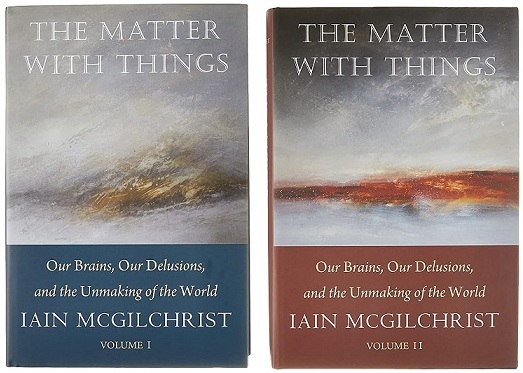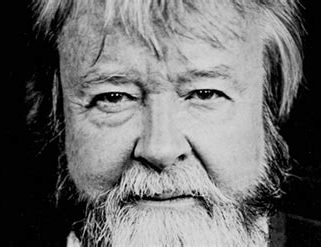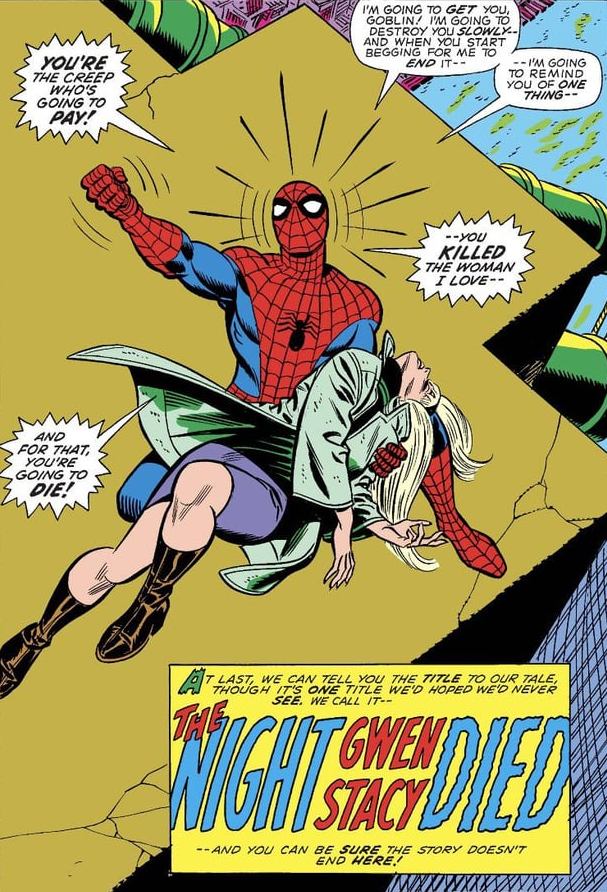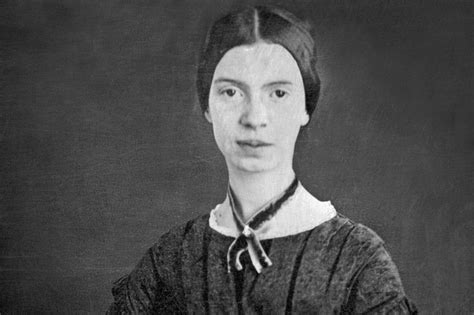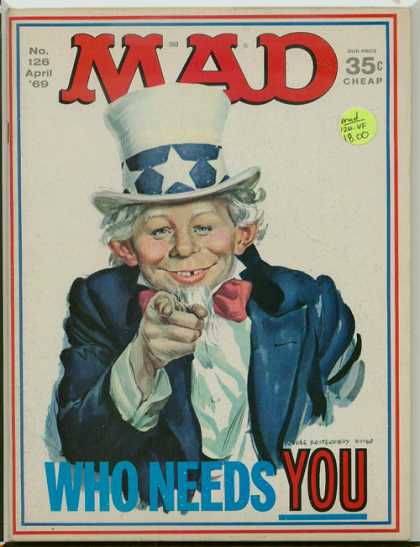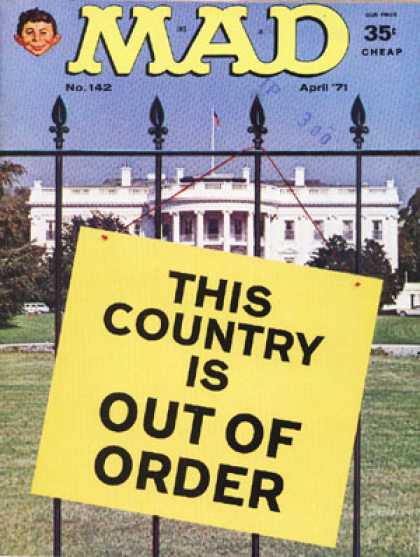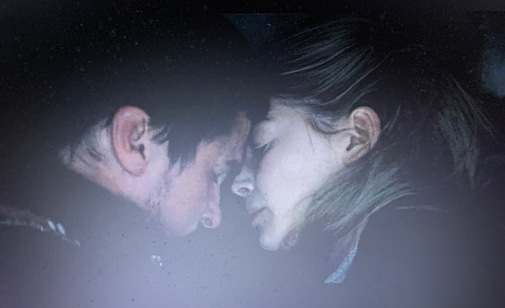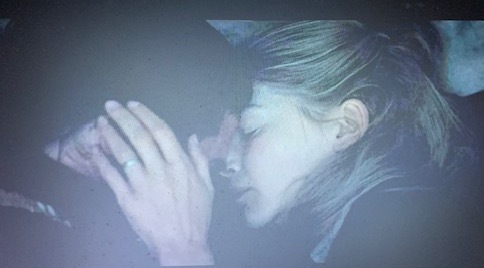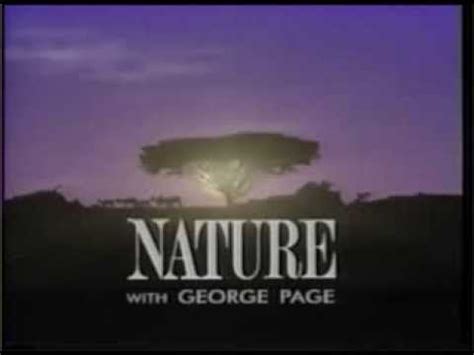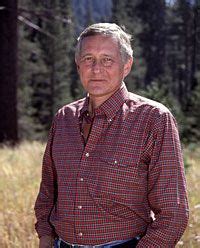|
Word Gems
exploring self-realization, sacred personhood, and full humanity
Editor's
Favorite Quotations
return to homepage
I desire so to conduct the affairs of this administration that if, at the end, when I come to lay down the reins of power, I have lost every other friend on earth, I shall at least have one friend left, and that friend shall be down inside me.
Abraham Lincoln
the open-eyed, unpretentious mind of God
Editor's Essay: the primacy of Universal Consciousness and how a better understanding of it might create for us a natural religion, a natural wisdom.
Editor's Essay: a Hitchhiker's Guide to the Afterlife: 10 Things You Need to Know upon Arrival
John Amos Comenius (1657): The education that I propose includes all that is proper for a man and it is one in which all men who are born into this world should share ... Our first wish is that all men be educated fully to full humanity, not any one individual, not a few, nor even many, but all men together and singly, young and old, rich and poor, of high and lowly birth, men and women - in a word, all those whose fate it is to be born human beings, so that at last the whole of the human race become educated, men of all ages, all conditions, both sexes, and all nations.
Eleanor Roosevelt: "This life [is] a continuing process of education and development. What we are preparing for, none of us can be sure. But, that we must do our best while we are here, and develop all our capacities, is absolutely certain. We face whatever we have to face in this life, and if we do it bravely and sincerely, we're probably accomplishing that growth which we were put here to accomplish."
| I'd rather be lonely than 'happy' with somebody else |
|
Wikipedia: "Love Me or Leave Me is a popular song written in 1928 by Walter Donaldson with lyrics by Gus Kahn. The song was introduced in the Broadway musical Whoopee!, which opened in December 1928."
|
Love Me or Leave Me
|
say, love me or leave me and let me be lonely, you won't believe me but I love you only, I'd rather be lonely than happy with somebody else, you might find the night time the right time for kissing, night time is my time for just reminiscing, regretting instead of forgetting with somebody else, there'll be no one, unless that someone is you, I intended to be independently blue, say, I want your love, don't wanna borrow, have it today to give back tomorrow, your love is my love, there's no love for nobody else
|
let me be lonely, I intend to be independently blue
Can we bring to mind any other song lyrics with more emotional punch, and good advice, per square metre than Love Me or Leave Me?
there'll be no one, unless that someone is you
READ MORE
|
“You can’t make the creative act happen. You have to do certain things, otherwise it won’t happen. But it won’t happen while you are doing them.”
“What is required is an attentive response to something real and other than ourselves, of which we have only inklings at first, but which comes more and more into being through our response to it – if we are truly responsive to it. We nurture it into being; or not. In this it has something of the structure of love.”
- Dr. Iain McGilchrist, The Matter With Things: Our Brains, Our Delusions
|
'One of the most important books ever published - and, yes, I do mean ever... a devastating assault' on the materialist worldview - Oxford Law professor, Charles Foster, for The Guardian
'[McGilchrist's] claims may turn modern ultra-Darwinists purple, but they cannot easily be dismissed' - Nick Spencer, Prospect magazine
Dr. Iain McGilchrist is a psychiatrist, neurologist, philosopher and writer. His 1600-page seminal work, The Matter with Things (2021), ten years in the making, presents the case that the brain’s left and right hemispheres see and interact with the world in profoundly different ways.
Two hemispheres, two worldviews:
Left-brain sees with tunnel vision, a narrowed focus of things in fragmented isolation, desires to analyze parts, is linear, can be ruthlessly goal-oriented, prefers literal interpretations, presses for control, exploitation, and manipulation of environment.
Right-brain is holistic in approach, seeks to understand the entirety, is comfortable with ambiguity and nuance, able to connect the dots, values relationships, looks for context and meaning, perceives a deeper connectedness with the world.
Both hemispheres are needed for a balanced view of reality; however, Dr. McGilchrist warns, a society dominated by left-brain activity can sink into materialistic malaise, will destroy itself by diminishing all that we stay alive for, all that makes us essentially human: virtue, respect for life, the sacred, authentic love, beauty, art and aesthetics, meaning and purpose.
READ MORE - quotations and summaries of The Matter With Things
READ MORE - an interview with Dr. McGilchrist
READ MORE - one chapter from his book with discussion
READ MORE - Kairissi and Elenchus discuss The Matter With Things
|
demarcating a comicbook-reality epoch

|
Gwen Stacey (Emma Stone) falls to her death in the 2014 Amazing Spiderman 2 but originally presented to Marvel readers in 1973. Fans judged this cinematic tragedy as just about the most disturbing event in comic book history: “The death of Gwen Stacey shocked the American comic book community. Previously, it had been unthinkable to kill off such an important character… This story arc has been proposed as a marker of beginning of the end of the Silver Age of Comic Books, and the beginning of the darker, grittier Bronze Age (Wikipedia).” Editor’s note: After witnessing Gwen’s demise in the Spiderman movie, before learning of Marvel fandom’s widespread lament, I too felt deeply moved. Why the outsized reaction, I wondered? But the answer is plain. Critics asserted that the chemistry between Gwen and Peter Parker (Andrew Garfield) was “off the charts,” utterly believable. Gwen’s beauty, intelligence, self-respect, and graciousness conflated to produce, it would seem, almost everyone’s idealized dream girl. Gwen Stacey in Amazing Spiderman 2 is the embodiment of “what we stay alive for,” the “O thou soul of my soul,” one’s life and light of heart and being. And the loss of this kind of girl, real or imagined, is no small matter.
|
to move uninjured among falling worlds, the anguish which might dissolve the stars
In his well-written essay on the Bronte sisters, Sydney Dobell speaks of Jane Eyre’s journey to Lowood School. Conditions are forbidding; dark, windy, rainy. Dobell comments:
"There is something intensely, almost fearfully, interesting in the diary of a child’s feelings. This 'I,' that seems to have no inheritance in the earth, is an eternity with a heritage in all heavens. This 'me,' which is thrown here and there as a thing of nought, the frail, palpitating subject of a schoolboy's tyranny, almost too fragile even to make sport for him, fear not for it. It can endure. This, that trembles at the opening of a parlour-door, quails at the crushing of a china plate, droops amid the daily cuffs and bruises of a household, and faints with fear in a haunted room, will pass alive through portals which the sun dare not enter, survive all kinds of temporal and spiritual wreck, move uninjured among falling worlds, meet undismayed the ghosts of the whole earth, pass undestroyed through the joys of angels, perhaps; also, through anguish which would dissolve the stars." Editor’s note: I am so shocked, breathless, at the beauty of Mr. Dobell’s writing here. I am tempted toward highest superlative: this might be the most captivating prose I’ve ever encountered. But, not just style, let us consider content. A young girl, alone, walking in cold and darkness, forlorn, with no safe harbor in life, secrets an astonishing destiny, one to yet surmount all obstacle, “to move uninjured among falling worlds, the anguish which might dissolve the stars.” Is this not incredible beauty?
Blaise Pascal: All of humanity’s problems stem from an inability to sit quietly in a room alone.
grandmother power
| for a discussion of the awesome, far-reaching, civilization-forming effect of ‘grandmother power’ see HERE |
|
I became herself...
Archdeacon Wilberforce, Letters from the Other Side: "On this side, when I met my beloved ... I became herself - she was transformed into me. All that she knew and felt became the content of my consciousness. All that I had attempted and achieved, all that I had failed to accomplish, yet battled and struggled to complete, was known to her as no words, no thoughts even, as earth uses the terms, could have conveyed. We were one, yet individually our own very separate selves, knowing as we were known, to the full extent of each other's capacity. Capacity is the only limitation in the spiritual realms."
Compare to the following, from Excursions to the Spirit World by Frederick C. Sculthorp: “So I concentrated my thoughts on her and simply said: ‘Come!’ After a short pause my wife suddenly appeared in the lane walking towards me. I felt very happy at the success of my telepathic call… as she came closer, I noticed that her features were exactly as they had been on earth. Then, as our auras met, there was a transformation. [Her features] were perfection. She was my same companion, but different; yet I knew her better than I had ever done before. I would have recognized her unfailingly, even with my eyes closed, because her whole life and personality were contained within her aura and I could sense the years of her companionship with me. I was also aware that she knew me better than she ever did before. There seemed to be a wonderful harmony between us, for we both uttered the same words of greeting and blessing at the same instant. After that we did not trouble to speak with our lips -- speech was too slow… we were able to exchange thoughts with unbelievable rapidity.”
Walk A Mile In My Shoes
If I could be you, if you could be me
For just one hour, if we could find a way
To get inside each other's mind
If you could see you through my eyes
Instead your own ego I believe you'd be
I believe you'd be surprised to see
That you've been blind
Editor’s note: Imagine the sense of spiked and intoxicating intimacy experienced by Wilberforce and his lover by “being the other,” by seeing the world through the beloved's eyes. This veritable “mind meld” is spoken of by other afterlife entities, which corroboration heightens the chances that this report is true. Notice, too, as per Elvis, the focus of this wondrous perspicacity - you were so sure, you were so hurtful, but "you've been blind." There'll be a lot of that going around.
|
what every new person to spiritual practice must understand
| Breakthrough: “Spiritual practice must be uninterrupted. We may be anxious because we see very little happening on a daily basis, but we must be patient… After long self-cultivation, one’s accumulated energy reaches a threshold and then bursts out, like a swan rising from the water… Once you have reached this level of stored energy, you will be a different person.” Deng Ming-Dao, 365 Tao |
Plotinus: "Beauty is the translucence, through material phenomena, of the eternal splendor of the One.”
Athanasius Kircher: “Whoever has the desire to pursue philosophy correctly should look to Nature's Archetype in every matter, so that by taking up Ariadne's thread in her intricate labyrinth he may keep himself safe and secure from wrong turns and deviant paths.”
Ram Dass: “What you meet in another being is the projection of your own level of evolution.”
Charles Dickens: “I wish you to know that you have been the last dream of my soul.”
Sir Arthur Quiller-Couch (1863-1944), On The Art Of Reading: "A very well-informed person is an object of terror."
|
the most important concept on the Word Gems site
At the time of this writing, the Word Gems site conceals 2200 documents; if printed, 10,000 pages might ensue.
I no longer feel the need to add anything to this corpus of information. Especially, with this final chapter of the "small room" book, I ask myself: if required to choose one most important concept from the many gold-nuggets I’ve been privileged to see, what would it be?
It’s is the “mind the gap” principle - introduced in the “Surrender and Acceptance” page, and further discussed in the “Zen” article, along with the “Just Sitting” writing.
“Mind the gap” means that one perceives the great existential separation between “true self” and “false self.” It allows one to say, “I am here, the real me, reveling in a quietude of peace, and over there, across the divide, is the emotional chaos which, for so long, has been masquerading as my essential self but, in fact, is an imposter.”
I feel there is no more important precept that one might possess to prepare one’s spirit for life in the next dimensions. Why is this? It is so because “mind the gap” means that you’ve not only accessed, but have crossed over the threshold into, the domain of the sacred soul.
In that celestial realm of certainty, wherein one is linked to Universal Consciousness, all mysteries will yet bow the neck and bend the knee to one’s investigations. In time, the hidden regularities of the universe will disgorge themselves as you come to understand more and more and more… and not even some of those on the other side for thousands of years, who have not yet perceived the efficacy of “mind the gap,” will be able to stand against you.
Some may ask, shouldn’t love have something to do with a “most important concept”? And I would say, yes, of course, as mystics, poets, and saints instruct of its highest expression of the human spirit. However, unless we access the “true self,” we will never experience authentic love, but only its ersatz counterpart, mere egoic wanting and needing. When we do find ourselves in this way, true love, a perception of oneness, automatically and naturally rises to the surface of consciousness. It was there all the time, in the silent reaches of the soul, inaccessible however, due to “static on the line” from the “false self.”
Editor’s note: Recently, I've come to view all of the above as "second most important." See near the bottom of this page.
|
Lao-Tzu: Retire silently, and to win, if at all, through yielding and patience; passivity has its victories more often than action… Do you have the patience to wait till your mud settles and the water is clear? Can you remain unmoving till the right action arises by itself?
|
Editor’s note: The great thinkers instruct that our truest desires cannot be reified in this world, our short time upon planet Earth. There are too many factors against us right now: not only are we subject to oppression and injustice here, but we, ourselves, will be too immature, not only to receive and achieve authentic objects of desire but, even to know what we really want. Little wonder then that poets like Rilke assert that the Beloved might be met only in eternity. In view of all this near-term systemic dissatisfaction, Lao-Tzu’s admonition to “retire silently” and “to wait” becomes our only route to success. The ability to wait, if necessary, for long, and very long, periods of time, is a lost art; without this virtue, however, we shall remain ever disappointed; with it, all of our authentic desires will yet bear fruit.
|
Franchezzo, A Wanderer In The Spirit Lands: "I have seen one of a pair of lovers, whom some misunderstanding had parted, and between whom death had placed a last insurmountable barrier, [go to] the Beloved One left behind, and seek, by all means in his power, to convey to her the true state of things, that their hearts had been true, whatever might have appeared to the contrary!"
John Wesley: Give me your hand. I do not mean you to be of my opinion; you need not. I do not expect it or desire it; neither do I mean I will be of your opinion. I cannot; it does not depend on my choice. I can no more think than I can say or hear as I will. Keep your opinion and I mine, as steadily as ever. Only give me your hand. I do not mean embrace my modes of worship or I embrace yours. I have no desire to dispute with you one moment. Let all matters - of belief - stand aside, let them never come inside. If thine heart is as my heart, if thou love God and all mankind I ask no more. Give me thine hand. "I believe," someone has said, "in the beloved community and in the spirit which makes it beloved and in the communion of all who, in will and deed, are its members." I see no such ideal community as yet, but my rule in life is: Act so as to hasten its coming.
the Krishnamurti lectures
John Curtis Gowan: "When Michelangelo did the Sistine Chapel, he painted both the major and minor prophets. They can be told apart because, though there are cherubim at the ears of all, only the major prophets are listening. Here, exactly stated, is the difference between genius and talent."
|
the errant metaparadigm produces scores of other errors
Augros and Stanciu: “But a mistake in world view [that is, metaparadigm] is much more grave than a false hypothesis [in science]. An error in a particular conclusion within one science is a [relatively] minor evil... But the worst of all is an error in world view [that is, the errant metaparadigm] because it influences the methods of all sciences as well as the attitudes and expectations in the arts, politics, religion, and every other phase of culture. A mistake in world view is necessarily an architectonic error, producing scores of other errors… [The invisible, subtle, but far-reaching, influences of the metaparadigm] set up the assumptions about the mind, the body, and the universe with which we begin; pose the questions we ask; determine the interpretation we give these facts; and direct our reaction to these interpretations and conclusions.”
it's the most dangerous and far-reaching error because it leads our assumptions, expectations, interpretations, and conclusions
|
Ernest Hemingway, acceptance speech, 1954 Nobel Prize in Literature (excerpt):
"Things may not be immediately discernible in what a man writes, and, in this, sometimes he is fortunate; but, eventually, they are quite clear, and by these and the degree of alchemy that he possesses, he will endure or be forgotten. Writing, at its best, is a lonely life…[the writer] grows in public stature as he sheds his loneliness and [then] often his work deteriorates. For he does his work alone, and, if he is a good enough writer, he must face eternity, or the lack of it, each day."
D. Ivan Young: “Your relationship may be ‘breaking up,’ but you won't be ‘breaking down.’ If anything, you’re correcting a mistake that was hurting four people: you and the person you’re with, not to mention the two people who you [both] were destined to meet.”

Rainer Maria Rilke: “It is part of the nature of every definitive love that sooner or later it can reach the beloved only in infinity.”
Ernest Fitzgerald: It is not by accident that the happiest people are those who make a conscious effort to live useful lives. Their happiness, of course, is not a shallow exhilaration where life is one continuous intoxicating party. Rather, their happiness is a deep sense of inner peace that comes when they believe their lives have meaning and that they are making a difference for good in the world.
|
Why do family members, old friends, and romantic mates drift apart or even abruptly split?
When my daughter was in high school, she had a girlfriend; the two seemed inseparable. Later, the friend chose an alternate lifestyle, assumed that she’d be judged, then abruptly, and permanently, broke off friendship ties.
An example of my own: In the “Evolution” article I recounted that in senior-high English class I’d delivered a speech on the subject of “Creationism versus Darwinism.” Almost all of it, as I now perceive, was error. However, a good friend since childhood disagreed, summarily rejected me, and put me away with no reconciliation.
the hidden cause of all conflict
Each of us, likely, could offer scores of such examples. Krishnamurti’s teachings on the ego – concerning dualism, fragmentation, separation, division – are not of mere academic interest only to professional philosophers. This information holds the sacred key to understanding why planet Earth is the stage for war and conflict, not just on the international level, nor solely with religious or political groups, but also among family members, friends, and lovers.
Why do people drift apart or become immediate enemies? The short answer is that they become an offense to each other. People identify with, make themselves equal to, belief systems which, they assume, will "make me happy." They say "this is who I am," and "this is what I need to be safe and happy," and if you represent something different, their self-image will be threatened, their prospects of safety and happiness will seem to fold - and then you'll be rejected, no matter the strength of former bonds of amity. You'll be rejected because, don't you see, it's a matter of life-and-death to the ego.
the carefully crafted self-image
In his 17.December.1969 lecture, Jiddu Krishnamurti offers one of the most clear and insightful explanations concerning the inner workings of this dark dynamic. When we feel offended by someone, he said, “there is an image about yourself,” one that we ourselves build. This ego-image reflects one's cultural “conditioning.” Why do we build this image? We do so “as a means of security ... of protection ... of being somebody.”
fear is behind the curtain
And what do we find if we draw back the curtain of this ego-image? “Now, if you go behind that," Krishnamurti says, "you will see there is fear.” What is the composition of this fear? It is the existential fear of "I don't have enough" because "I am not enough."
Let’s analyze this ego-image more closely. Why do we build it? What are we protecting? If we allow ourselves to become very still, if we taste and sample the nature of this hidden fear, we will find that we’re protecting a self-image, a mental projection of what the ego would like to be and have:
“I am the person who needs to be seen as virtuous, respected, worthy of honor. And it goes without saying that I know what’s best for you.”
“I am the person who needs to be seen as right and correct. As such, I need you to believe as I do, to agree with all of my religious superstitions, and my self-serving political views. I need you to accept all of my inflexible opinions because your assent makes me feel, not just safe and secure but, that I’m worth something.”
“I am the person who needs to be seen as successful, 'in the know,' and winning. I want you to be impressed with what I am and what I have so that I’ll be counted as a somebody. I need these merit badges so that I can face my peer group, family, and community and be considered important."
“I am the person who craves to be viewed as a wise person, an in-demand friend, a counselor with ‘the answers.’ I count on you to offer me this prestige so that I can feel good about myself.”
"I am the person who grew up on the 'wrong side of the tracks.' My family culture held great disdain for education and knowledge. This disrespect for anything truly progressive has always held me back, creating for me a self-image of 'I’m not smart enough to succeed. I can't get a high-paying job, that's for other people.' And so if you come to me and suggest that, in fact, I do possess talents and strengths, then I will feel very uncomfortable, begin to panic, as you attempt to lead me out of my dysfunctional comfort-zone. At the first sign, with your help, that I I could actually advance myself, I’ll fall apart, swoon in terror, and then begin to blame you, and hate you, before I retreat and crawl back under the safety of my rock."
"I am the person who is comfortable with present ideas. They've gotten me this far (sort of). And they may be half-baked, a straw-house of illogicality, but, even so, these irrationalities offer a certain veneer of meaning to my life. In support of this charade, I surround myself with so-called friends with whom I share a tacit agreement, an unspoken pact: 'You must agree never to point out the non sequiturs of my beggarly superstitions, and I will agree to act as if I accept yours.' That’s the conspiratorial deal. However, if you come along with hard empirical evidence, well-reasoned positions, and suggest that I might want to take a more honest approach to what I believe to be true, well then, I will have to hate you for upsetting the applecart of my entrenched and time-honored unreasonableness."
"I am the person who carries on the traditions of my family. Unfortunately, these are more like peculiar shibboleths, marks of tribal distinction, but not of honor and dignity. I feel duty bound to ask, “What would mother do?” or “This isn’t the way dad did it.” I don’t have enough self-respect to live my own life, follow my own insights, quest for my own meaning and destiny. And if you come along and encourage me to think for myself, to break the apron strings (years after mom passed on), I will feel frightened, disoriented. And then I will blame and hate you for pushing me toward autonomy, full personhood, and self-realization."
“I am the person who needs you to make me happy. You can be my friend/lover/relative if you do exactly what I say and think just as I think. Anything less than this will be threatening to 'who I am.' I need you to love me -- just as I am, with all of my soft-underbelly beliefs -- to compliment me, to defer to me, so that I can judge myself as ok. Don't let me down, I warn you.”
“I am the person associated with you, and if you disappoint me, if you fall short of my expectations - especially after all I've done for you - if you fail to make me happy, if you begin to take on contrary opinions, then you will become an opposing force to what I want and to the image I’ve created for myself. If any of this happens, then, of course, I’ll have to get rid of you, even though we’ve meant much to each other over long years. I'll have no choice but to shun you.”
And so if anyone – sibling, friend, lover, child, parent -- stands as opposition to any of these ego-images, then the offending person will immediately be counted as an enemy, no matter a long history of cordial relation.
a closer look at the hidden fear
We find there’s more than one curtain to open. The ego’s need to be seen as right, virtuous, properly religious or political, is not the only hidden agenda. As one pierces the levels of self-obfuscation we discover the core terror which vivifies all of the ego’s activities. It’s the fear of death. This is the central terror, as we learn from the great psychologists.
This means that when one is attacked, there may be purported surface issues, but the real reason people rage and become apoplectic is the ego fighting for its life. It's identified with, made itself equal to, being right, virtuous, and all the rest, and if it fails to promote itself with these "images," then it will face a kind of psychological death. “Who will I be?” it asks, if these false-security images are minimized or taken away?
the high cost of following the truth wherever it leads
All this is most dire. The reality is, if you assiduously pursue the truth, no matter the cost or where it might lead, then you will lose (for a time) almost every last person who was once close to you. Why must it be so? - because you will become a living, walking threat to another’s carefully crafted self-image.
narrow gate, without fellowship
Editor's note: In his writings, Andrew Jackson Davis warns of the "narrow gate" that leads to life; few be that enter it. Those who live courageously by following the truth wherever it leads, as Davis points out, “will walk a pathway without fellowship of thy earthly brethren.” The cults have long employed the weapon of excommunication, shunning, and ostracization - a forced separation from friends, workmates, and family - toward anyone who disagrees with the hive mentality. This putting away occurs not just in religion but in dysfunctional families, corporations, academia, politics, and other power-seeking groups. They’re afraid of contrary opinion which might disembowel and expose shallow teachings. And so they’ll get rid of you for spreading "misinformation"; and you, as a truth seeker, will be censored and required to make your way through this world “without fellowship of thy earthly brethren.” But, be assured, a day of reckoning is but one missed heartbeat away.
We, ourselves - not some mythical Satan - are the focal point of all evil in the universe. It’s the pathological ego within; it’s the false self, the ego-images, ever attempting to find safety and security for itself, to bolster an inner neediness, the existential emptiness deep within.
We cannot become truly educated, nor reach a good level of wisdom and maturity, in the highest and best sense - or meaningfully prepare ourselves for Summerland or to be with one’s Twin Soul - without understanding the wiles and machinations of our own personal “heart of darkness.”
please, it’s very impolite of you to notice that I lack a self
Soren Kierkegaard: “But in spite of the fact that man has become fantastic in this fashion [i.e., lives unrealistically by denying his own mortality and impending death, the terror of which is covered up by palliatives such as ritualistic, form-based but empty, religion], he may nevertheless … be perfectly well able to live on, to be a man, as it seems, to occupy himself with temporal things, get married, beget children, win honor and esteem – and perhaps no one notices that, in a deeper sense, he lacks [an authentic] self.”
|
Margaret Mead: Never doubt that a small group of thoughtful, committed citizens can change the world. Indeed it's the only thing that ever has.
Theodore H. White: To go against the dominant thinking of your friends, of most of the people you see every day, is perhaps the most difficult act of heroism you can have.
|
Nothing is too wonderful to be true if it be consistent with the laws of nature.
Michael Faraday, the great English chemist and physicist
|
Viktor Frankl, Man's Search for Meaning: recounting an Auschwitz experience: "We stumbled on in the darkness, over big stones and through large puddles, along the one road running through the camp. The accompanying guards kept shouting at us and driving us with the butts of their rifles... But my mind clung to my wife's image, imagining it with an uncanny acuteness. I heard her answering me, saw her smile, her frank and encouraging look... for the first time in my life I saw the truth as it is set into song by so many poets, proclaimed as the final wisdom by so many thinkers. The truth - that love is the ultimate and the highest goal to which man can aspire. Then I grasped the meaning of the greatest secret that human poetry and human thought and belief have to impart: The salvation of man is through love and in love. I understood how a man who has nothing left in this world may still know bliss, be it only for a brief moment, in the contemplation of his beloved... I resumed talk with my loved one: I asked her questions, and she answered; she questioned me in return, and I answered."
|
In 1787, a young Englishman, William Wilberforce, became aware of the atrocities of the African slave trade. So moved was he that, against all odds, against powerful political and economic interests, often working alone, he began to wage war on this barbarity. Very slowly, by inches, as prosecuting attorney for the truth, he would turn public opinion against the great inhumanism. Finally, after decades of crusade, during which he was constantly attacked, threatened, and vilified by the privileged, Parliament set as law The Slavery Abolition Act of 1833 throughout the entire British Empire. Wilberforce's struggle was not unique: every reformer, as guardian of sacred freedoms and human dignity, intent upon overturning the vested totalitarian interests, the "money-changers' tables," will face kangaroo-court treatment in this world. See William Wilberforce in the motion picture, Amazing Grace, and read more on the "Economics" page.
|
|
God has no favorite kids in 'the Family' and no one is to be unduly elevated; we are all brothers and sisters with exactly the same potential
Life In Two Spheres, or Scenes in the Summerland, by Hudson Tuttle, channeled testimony from the other side. One called 'The Ancient Sage', in Summerland for 3000 years, advises a new-comer who deprecates himself:
"Wretch! Wretch! Wretch,” he exclaimed in anguish. "Oh, that I had never been born!”
The Sage, taking him by the hand, raised him up, saying: "Self-accusing child, why blame yourself thus? Blame no one for their follies, but the circumstances in which you were placed. They were bad; popular opinion, before which you bent, was bad. All tended to make you what you were. You have a germ of native goodness in your being, or you would not thus accuse yourself. Arise! weep no more! The future is bright.” ...
"You have corrected me aright; I acknowledge your superior spiritual powers of perception reverentially."
'we acknowledge submission to no one, each is his own individual sovereign'
"Reverence not me; I am no more than the others. We acknowledge submission to no one. Each is his own individual sovereign, to think and act as best pleases himself, if he is regardful of the rights of others and is measured by his worth alone. If you are thankful, express it, not by words or gestures, but by actions. Reverence not me, but truth. You are still prejudiced on this and kindred subjects, and your prejudice must be overcome."
READ MORE of individual sovereignty in the "Emerson" writing
|
Erich Fromm: "The main task in everyone's life is to bring himself to light."

see the essay on "The Perfect Mate"
Elizabeth’s Barrett's letter to Robert Browning, February 24, 1846: "I am living for you now. And before I knew you, what was I and where? What was the world to me … and the meaning of life?"
Abd ER-Rahman III of Spain (960): I have now reigned about 50 years in victory or peace, beloved by my subjects, dreaded by my enemies, and respected by my allies. Riches and honors, power and pleasure, have waited on my call, nor does any earthly blessing appear to have been wanting to my felicity. In this situation, I have diligently numbered the days of pure and genuine happiness which have fallen to my lot. They amount to fourteen.
|
Do not believe on the strength of traditions, even if they have been held in honor for many generations and in many places; do not believe anything because many people speak of it; do not believe on the strength of sages of old times; do not believe that which you yourselves have imagined, thinking that a god has inspired you. Believe nothing which depends only on the authority of your masters and priests. After investigation, believe that which you have yourselves tested and found to be for your good and that of others.
(attributed to) The Buddha, The Kalama Sutta
|
you will experience unimaginable things, no one will believe you
"Spiritual practice must be uninterrupted. We may be anxious because we see very little happening on a daily basis, but we must be patient until we can see what the accumulation of our effort yields. Self-cultivation means steady gradual progress…
"After long self-cultivation, one’s accumulated energy reaches a threshold and then bursts out, full, breathing, and vibrant… When one’s spiritual energy emerges, it feels like a swan rising from the water...

"If you spend a long period of time in study and self-cultivation, you will enter ... a world of extraordinary perceptions. You experience unimaginable things, receive thoughts and learning as if from nowhere, perceive things that could be classified as prescient. Yet if you try to communicate what you experience, there is no one to understand you, no one who will believe you. The more you walk this road, the farther you are from the ordinary ways of society... To speak to them of the wonders you have seen is often to engage in a futile bout of miscommunication. That is why it is said that those who know do not speak." Deng Ming-Dao, 365 Tao
|
beauty is not in the thing
Jiddu Krishnamurti, September 24, 1967, London: “Like love, beauty is not the cultivation of thought. A thing of beauty is not beauty. Beauty is not in the thing, in the building, in the person; but there is that beauty which is not the result of conditioning, in which thought in no way interferes.”
The sense of beauty is an opinion, a judgment, concerning the good and the true.
Beauty issues not from one's “hardware” but “software,” the “programming.”

See more discussion in the “waves” article.
|
John Ruskin: Great nations write their autobiographies in three manuscripts, the book of their deeds, the book of their words and the book of their art. Not one of these books can be understood unless we read the two others, but of the three the only trustworthy one is the last.
Kama Sutra: If men and women act according to each other's liking, their love for each other will not be lessened, even in one hundred years. READ MORE
Susana Wesley: Whatever weakens your reason, impairs the tenderness of your conscience, obscures your sense of God, takes off your relish for spiritual things, whatever increases the authority of the body over the mind, that thing is sin to you, however innocent it may seem in itself.
|
‘total action’ comes about with no effort at all
This is an extremely important concept by Krishanmurti.
It is Lao Tzu’s ancient wisdom in a new wrapper:
READ MORE - the Krishnamurti lecture of 29 Nov 1959
|
Epictetus: Tentative efforts lead to tentative outcomes. Therefore, give yourself fully to your endeavors. Decide to construct your character through excellent actions and determine to pay the price of a worthy goal. The trials you encounter will introduce you to your strengths. Remain steadfast... and one day you will build something that endures, something worthy of your potential.
|
authentic relationship, existential beauty, as 'consonance with the whole', 'no you and no me', the mystical experience

Editor's note: Among the 2200 documents on Word Gems, there is a cluster of six articles that rank among my very favorite. To access, begin with this one.
|

|
Nature is not at war, one organism with another. Nature is an alliance founded upon cooperation; an exquisite harmony and proportion, a grand symphonic mutualism, a perfect balance and order of symbiotic ecosystems. There is no "dog eat dog," no "law of the jungle"; except among dysfunctional humans, needing remediation.
|

|
the moment of becoming a sane, really free, human being
“I'm simply saying that there is a way to be sane. I'm saying that you can get rid of all this insanity created by the past in you. Just by being a simple witness of your thought processes. It is simply sitting silently, witnessing the thoughts, passing before you. Just witnessing, not interfering not even judging, because the moment you judge you have lost the pure witness. The moment you say ‘this is good, this is bad,’ you have already jumped onto the thought process. It takes a little time to create a gap between the witness and the mind. Once the gap is there, you are in for a great surprise, that you are not the mind, that you are the witness, a watcher. And this process of watching is the very alchemy of real religion. Because as you become more and more deeply rooted in witnessing, thoughts start disappearing. You are, but the mind is utterly empty. That’s the moment of enlightenment. That is the moment that you become for the first time an unconditioned, sane, really free human being.”
Osho, Indian mystic, (1931-1990)
|
|
one's personal sense of 'I Am,' on a deeper level, merges with the great 'I Am'
“If I penetrate the depths of my own existence, to the indefinable ‘I Am,’ that is, myself, at its deepest roots, then through the deep center I pass into the infinite ‘I Am,’ which is the very Name of the Almighty."
“It [higher consciousness] starts not from the thinking and self-aware subject but from Being. . . . Underlying the subjective experience of the individual self, there is an immediate experience of Being. This is totally different from an experience of self-consciousness. . . . It has in it none of the split and alienation that occurs when the subject becomes aware of itself as a quasi-object. The consciousness of Being . . . is an immediate experience that goes beyond reflexive awareness. It is not ‘consciousness of’ but pure consciousness, in which the subject as such ‘disappears’.”
Thomas Merton, monk and priest, (1915-1968)
|
Augustine: Every disorder of the soul is its own punishment.
Henry Wadsworth Longfellow: Look not mournfully to the past ... it comes not again; wisely improve the present - it is thine; go forth to meet the shadowy future without fear; and with a manly heart.
Will & Ariel Durant, The Lessons of History: The only real revolution is in the enlightenment of the mind and the improvement of character, the only real emancipation is individual, and the only real revolutionists are philosophers and saints.
see the "Clear Thinking" article,
introduction and conclusion,
for discussion on Fitzgerald's insight
|
refusing to become someone’s enemy

My favorite scene in the whole Stargate series was Lya of "The Nox," like a Spirit Guide, coming to offer wisdom and protection.
Don't let the unsolved hairdos of The Nox fool you. Ultra-sophisticated, The Nox's schtick, just to throw you off, is to pose as primitive forest-dwellers.
But, in fact, they're one of the most advanced civilizations across the cosmos, with not only floating cities but cloaked floating cities.
Lya's pretty good at making a lot of things disappear -- weapons of soldiers, entire spaceships, turning people invisible and transporting them; and she'll help anyone. The Nox live by a strict code of nonviolence. When push-comes-to-shove, however, it's true they will help the "good guys," but, the annoying part is, they'll also help "the bad guys."
Little wonder then that even the battle-hardened Col. Jack O'Neill found himself gushing before the high-order morality and sentience of The Nox: "God, I love those people!"
READ MORE
|
William Wordsworth: The human mind is capable of excitement without the application of gross and violent stimulants; and he must have a very faint perception of its beauty and dignity who does not know this.
Warren Buffett: Confronted with a challenge to distill the secret of sound investment ... we venture the motto, Margin of Safety. Forty-two years after reading that [phrase of Benjamin Graham], I still think those are the right three words.
|
True spirituality is gained only by accessing the 'inner life'.
Spirituality is about burgeoning life, blossoming, unfolding life, and this life comes only from God; life comes only from life.
Experience can prune, scintillate, and offer choices, but it cannot impart life.
Experience can effect change at the surface of personality but not at the level of core being. There, it is only the self-observation, the 'simply noticing' of the antics of the mind, which allows the true self, the divine life, to emerge.
There is no salvation in experience, little or much. This is the crux of reincarnation's error, where its believers go wrong.
READ MORE
|

Where is the voice to answer mine back?
|

|
“A hand for each hand was the plan for the world, why don’t my fingers reach? Millions of grains of sand in the world, why such a lonely beach? Where is the voice to answer mine back? Where are two shoes that click to my clack? I’m all alone in the world!” Mister Magoo’s Christmas Carol, 1962
|
|
'so magnetic, so overwhelming'
Silver Birch, testimony from the other side: There is a great power in the universe... it is so real that it transcends all other forces ... that love is deathless because it is part of the Great Spirit , the creative spirit of all life, part of the power which has fashioned life; it is indeed the very breath and the very essence of life. And wherever love exists, sooner or later those who are united by its willing bonds will find one another again [implying, the two had been temporarily "lost"] despite all the handicaps and obstacles and impediments that may be in the way... there is the love, the undeniable love, between man and woman who are complementary to one another; that is, they are two in form, but one in purpose -- they harmonise, they are, indeed, as your poet has expressed it, 'Two hearts that beat as one.' Now, where that love has found itself, there is never any separation. Those whom the natural law has joined by love can never be sundered in your world or in mine. Where there is that love - and here I am afraid I am going to be controversial - it is always reciprocated... the real love, that only comes once to each man or woman, whether on earth or in the world of spirit, is always reciprocal... the two halves instinctively, because they are two halves, must recognise one another. That does not happen in your world always because your vision, regarding things of the spirit, is often blind... Physical things [circumstances in this world of suffering] could stop it [temporarily stop the destined two from coming together] ... but real love is so magnetic, is so overwhelming in its attraction, that it must find itself and claim itself, when once you have got rid of the imperfections of the earth which were the deterrents to recognition.
"I'm sorry I left you, Lois."
Native American prayer: Let me walk in beauty and make my eyes ever behold the red and purple sunset. Make my hands respect the things you have made, and my ears sharp to hear your voice. Make me wise so that I may understand the things you have taught my people. Let me learn the lessons you have hidden in every leaf and rock. I seek strength not to be greater than my brother but to fight my greatest enemy: myself. Make me always ready to come to you with clean hands and straight eyes. So when life fades as a fading sunset my spirit may come to you without shame.
Vincent van Gogh, "Old Man in Sorrow" (On the Threshold of Eternity), 1890
Kicking Bird, Dances With Wolves: Of all the trails in this life, there is one that matters most: it is the trail of a true human being.
Bruce Lee: Empty your mind, be formless, shapeless, like water. Now you put water into a cup, it becomes the cup; you put water into a bottle, it becomes the bottle... Now water can flow or it can crash. Be water, my friend... When the opponent expands, I contract, when he contracts, I expand, and when there is an opportunity, I do not hit, it hits all by itself... [Success is] not being tense, but ready... not being set, but flexible, liberation from the uneasy sense of confinement. It is being wholly and quietly alive, aware and alert, ready for whatever may come.
|
the transforming power of the quiet small room
Emily Dickinson (1830-1886); the poet's bedroom
According to a biographer, Dickinson was known to her neighbors as a “recluse,” an “enigmatic woman ... rarely leaving her house, or even her bedroom, during the last quarter century of her life.”
She’d experienced a trauma around age 30. To a friend in 1862, Emily confided, “I had a terror since September, I could tell to none.” Subsequent writings reveal deep undercurrents of sorrow.
all of us suffer, but not all of us see
What we do know is that she was able to transform her grief, arguably, into the most insightful didactic poetry ever produced -- 1775 offerings -- concerning the essence of consciousness, the nature of suffering, the meaning of life and death, and the true self.
|
Norman Rockwell artwork


SEE MORE of Norman Rockwell artwork
|
the difference between pride and self-esteem
Bruce Lee: “Pride is a sense of worth derived from something that is not part of us, while self-esteem derives from the potentialities and achievements of self. We are proud when we identify ourselves with an imaginary self, a leader, a holy cause, a collective body of possessions.
“There is fear and intolerance in pride; it is insensitive and uncompromising. The less promise and potency in the self, the more imperative is the need for pride. The core of pride is self-rejection…
“All social disturbances and upheavals have their roots in a crisis of individual self-esteem, and the great endeavors in which the masses most readily unite [are] basically a search for pride.”
|
JFK, Thirteen Days: There is something immoral about denying your own judgment.
William Bradford, speaking in 1630 of the founding of the Plymouth Bay Colony: It was answered that all great and honorable actions are accompanied with great difficulties, and must be enterprised and overcome with answerable [corresponding] courages. It was granted that the dangers were great, but not desperate, and the difficulties were many, but not invincible, ... and all of them, through the help of God, by fortitude and patience, might either be borne or overcome ... [But] their condition was not ordinary. Their ends were good and honorable, their calling lawful and urgent, and therefore they might expect the blessing of God in their proceeding; yea, though they should lose their lives in this action, yet they might have comfort in the same, and their endeavors would be honorable.
Winston Churchill: To those who mused of surrender in the face of the feared coming invasion, he castigated: "Let it end only when each one of us lies choking in his own blood." He forbade all peace dealings with the Nazis.
12 Angry Men: What kind of a man are you? You have sat here and voted “guilty” with everyone else because there are some baseball tickets burning a hole in your pocket ... If you want to vote “not guilty” then do it because you are convinced the man is “not guilty” - not because you have had enough! And if you think he is guilty then vote that way! Or don’t you have the guts to do what you think is right?
Carl Sandburg: Valor is a gift. Those having it never know for sure whether they have it till the test comes. And those having it in one test never know for sure if they will have it when the next test comes.
Paul Johnson: "When we are dealing with concepts like freedom and equality, it is essential to use words accurately and in good faith... beware of those who seek to win an argument at the expense of the language. For the fact that they do is proof positive that their argument is false, and proof presumptive that they know it is. A man who deliberately inflicts violence on the language will almost certainly inflict violence on human beings if he acquires the power. Those who treasure the meaning of words will treasure truth, and those who bend words to their purposes are very likely in pursuit of anti-social ones.
George Orwell, 1984: If the Party could thrust its hand into the past and say ... it never happened ... [then] where did that knowledge exist?... if all others accepted the lie which the Party imposed - if all records told the same lie - then the lie passed into history and became truth. Who controls the past, ran the Party slogan, controls the future: who controls the present controls the past... Reality control, they called it ... This day-to-day falsification of the past, carried out by the Ministry of Truth, is as necessary to the stability of the regime as the work of repression and espionage carried out by the Ministry of Love.
you can be conditioned to believe anything
Krishnamurti's lecture, Brockwood Park, England, Sept 14, 1969
"You know, there is a whole section, the Communists, who do not believe in spirit, not in a spirit, nor in a soul. The whole Asiatic world believes that there is a soul, that there is the Atman. You can be conditioned to believe anything. The Communist doesn't believe in God; the others believe in God because that is the way they have been brought up. The Hindus believe in a thousand different gods, conditioned by their own fears, their own demands and their own urges. Can one become aware of these conditionings - not only of the superficial conditionings but also of those deep down - and be free of them? If one is not free, one is a slave, always living in this rat race, and that we call living."
|
Mad magazine’s meteoric rise during the 1960s, its iconic irreverence for the conventional, reflected the Boomer’s growing distaste for disingenuous authority.
|
Adolf Hitler, Mein Kampf: The German people have no idea of the extent to which they have to be gulled in order to be led ... The size of the lie is a definite factor in causing it to be believed, for the vast masses of the nation are in the depths of their hearts more easily deceived than they are consciously and intentionally bad. The primitive simplicity of their minds renders them a more easy prey to a big lie than a small one, for they themselves often tell little lies but would be ashamed to tell a big one ... All propaganda must be so popular and on such an intellectual level, that even the most stupid of those towards whom it is directed will understand it. Therefore, the intellectual level of the propaganda must be lower the larger the number of people who are to be influenced by it ... Through clever and constant application of propaganda, people can be made to see paradise as hell, and also the other way around, to consider the most wretched sort of life as paradise.
George Orwell, Animal Farm: We pigs ... are watching over your welfare. It is for your sake that we drink that milk and eat those apples... All animals are equal but some animals are more equal than others.
|
common definitions of 'meditation' are errant
“Meditation”, as defined by the popular culture, is fraught with error and takes us wide of the mark. It is not primarily about controlling or stifling the mind, which is a quantum field of possibility that cannot be shut down, not without dulling the mind.
Properly construed, meditation, the kind that fosters real spiritual growth, is effected by “simply noticing” the misbehaviors of the mind. Krishnamurti addresses this subject in many lectures but of note are the talks on May 7 and May 10, 1966.
simply noticing
Why is “simply noticing” efficacious to our success? The “made in the image” inner-life is like a seed – call it a “God-seed”, the nucleus of what we are to become. How to germinate this seed? – not by moisture and warmth but “simply noticing.” The inner-life naturally wants to burst forth in our persons, we don’t have to supervise it. As with all seeds, there’s no huffing-and-puffing to make it grow – as Jesus said, “my teaching discipline is easy, my burden is light.” There’s no effort to make this happen, but only to “notice” the antics of the mind.
germinate
This “noticing” reduces the strength of the ego in our lives, and, in consequence, the God-life within naturally germinates and begins to assert itself.

Like the proverbial tiny mustard seed growing and growing, eventually filling the heavens, over the coming years, and into the next worlds, the God-life within will inexorably burgeon and transform one’s mind, heart, and being, in a totally natural way. There’s nothing for us to do but to mentally observe the inner life. See more on “simply noticing” here.
|
|
Editor’s note:
the most important thing we can know about how to find the true mate
On the "Omega" page you will learn a great deal about authentic love and marriage.
But allow me to begin with the conclusion, something I finally learned after 30 years of meditation on this subject.
This insight transforms the entire search for the sacred beloved.
READ MORE
|
|
That which was true yesterday, though it has still elements of truth, is not so in the light of new knowledge. Knowledge is something ever changing. Man is ever experiencing new things, gaining greater understanding, greater realisation, greater wisdom and, in consequence, knowledge becomes ignorance through the light of new knowledge.
An ancient Chinese man, from the other side, offered testimony via Leslie Flint direct-voice mediumship; tape-recorded July 30th 1959.
"I have lived on your plane of Earth centuries ago, in China. I have been called by several names, and I do not feel that it would be any advantage for you to know these names... For a man who was wise, as you understand it, upon Earth, as soon as he passes through the gates called death, he realises that his Earthly wisdom was as naught. Wisdom is purely the condition or state of being which may apply, and does apply, until such time as you have progressed to a further state - and that which was wisdom in the past becomes ignorance, in consequence of the wisdom gained. Wisdom is something which is a state of being according to one's knowledge of things appertaining at the time. But that which was true yesterday, though it has still elements of truth, is not so in the light of new knowledge. Knowledge is something which is ever changing. Man is ever experiencing new things, gaining greater understanding, greater realisation, greater wisdom and, in consequence, because movement is life, because man cannot remain stationary, knowledge becomes ignorance through the light of new knowledge… We who come to you know that man will only find divine truth when he himself becomes divine, when he himself becomes spiritually attuned into the higher spheres and the greater souls who come… [There are] tremendous things that lie further ahead in the higher spheres - where it is impossible in words to depict in any shape or form such a condition of life… You cannot see these things, for you are not ready to see. You cannot understand these things, for you are not ready to understand. We are not in a world that is three dimensional. We are in a world that is four dimensional, which you could not possibly conceive or understand. It is beyond your comprehension… To all those who seek I say, seek. At the same time remember, that you must be as children and have faith and keep open wide the door that it may enter therein and realise that truth is ever-changing. That which was truth yesterday won't remain as truth, in the light of new truth… It is only, as it were, a little aspect - for we must always remember, it is but a grain, like of sand in the desert of truth, a grain of truth in a huge sea of sand or desert.”
|
reprinted from the "mashal" page:
|
Is this the greatest mashal-generated understanding?
Editor’s note: I’m offering this about 20 years after writing the main article on the mashal principle.
In the early chapters of Genesis, we find a proverbial story of two trees: one representing “knowledge of good and evil” and the other that of “life.”

Are we to compare these two using the mashal device?
What if both trees – not just the first -- are symbols of two different processes of accessing information, making decisions, solving problems, concerning the world, existence, and God?
What if "the tree of life" also signifies a mode or method of gaining knowledge?
If so, “the tree of the knowledge of good and evil” might become a universal metaphor of humanity’s long trek of stumbling through history experimenting with what Herodotus called local “nomos”: tribal customs and conventions, parochial laws and precepts, every kind of life-style, all manner of trial-and-error.
We’re reminded of Churchill’s wry comment: “The Americans can be counted on to do the right thing – after they’ve tried everything else.” That is, after suffering one’s way into a better view.
All this, set against “the tree of life" -- a different method of determining right and wrong, good and evil, wise and foolish. It is the path of accessing “God within,” the “inner light of the soul,” the way of the Spirit, our direct link to God.

What does the apple represent?
The “tree of the knowledge of good and evil” comes with two supporting images:
- the apple
- the agent of deception
Keep in mind that none of this literally happened, there is no historical basis. We’re talking about teaching metaphors.
The “forbidden fruit” – traditionally said to be an apple – is a symbol of something that satisfies an appetite. It’s meant to signify anything external which people imagine will fill up the existential emptiness within. On Word Gems, we often call this a sense of “I don’t have enough” because “I am not enough.”
The “deception” here has been a near-universal illusion. Almost everyone believes, to various degrees, that “If I can just get enough money, win the right pretty girl, if I can be a big shot and push my way to the head of the line, if I could have power over others, get a fancy house with great curb appeal, and a few other things – then I’ll finally be happy, then the cravings within will be silenced, and I’ll have peace of mind.”
But, eating of this "forbidden fruit" has never made anyone happy. That’s the deception.
Does anything satisfy the inner cravings? Will peace of mind be ever elusive?
Only eating of the “tree of life” can quiet existential terrors. The great mystics have well described. See Emerson’s essay as one of the very best explanations.
The two trees represent two broad approaches on how to live life.
Relatively few, in the history of the world, have eaten of the tree of life. And this deficit is the hidden cause of humanity’s endless and dreary rise-and-fall of civilizations. It's happened "seven times," which is Revelation's number for an infinite series of times.
And it all started when the first humans, the mythical primordial parents, were ejected from a garden paradise -- a venue of possibility concerning living "in the Spirit" -- but now compelled to live out their choice of eating the bitter fruit of denying the “inner guidance.”
|
|
'What is belief? - a state, not an act, of the mind.'
Augustus De Morgan (1806-1871)
|
British mathematician, with contributions to logic, set theory, probability theory, computer science, and numerous other fields; founder, London Mathematical Society (1865)
|
'It is not in the power of anyone to alter his state [of mind] by will. [There is] a tendency to suppose that [mere] profession [of mental position] might be taken for belief; the dishonest wanted only profession.'
READ MORE
|
it's not the color of skin, but the heart of darkness
READ MORE on the "Economics" page
|
slavery in every country of the globe, in all ages
Spirit Guide instructing Franchezzo in the Dark Realms:
“If you will but recall the history of your Earth and think how men in all ages have enslaved, oppressed, and tortured their fellow men in every country of that globe…”
READ MORE of Franchezzo's channeled testimony concerning the Dark Realms.
|
in early America, there were both white and black slave owners
Wikipedia: “African American slave owners within the history of the United States existed in some cities and others as plantation owners in the country.”
Further, in Africa blacks enslaved blacks, and some blacks worked with white slave traders supplying black slaves for shipment.
For political reasons of totalitarian control, we have been offered a doctored narrative that slavery, and by extension racism, is a white problem and a white vice. But this wholly distorts the issue. Slavery and racism do not spring from one particular oppressor or group but these evils are part of a universal “heart of darkness” afflicting all human beings. This misrepresentation of history promotes division and strife among groups, allowing demagogues to buy votes, to position themselves as saviors, against the “evil white race.”
All unenlightened human beings will seek to dominate, oppress, and – if they can get away with it – enslave all others. This is business-as-usual on planet Earth for thousands of years. Today, while the traditional enslavement of peoples still exists in the world, there are other forms of slavery impinging upon human rights: child trafficking, drug dealing, pedophilia and sex slaves; and, for those who prefer the more subtle approach, there is the ever-popular mental enslavement via fake news, censorship, character assassination, and other distortions to serve political agendas.
|
the US Founding Fathers, with their emphasis on personal liberties, are attacked by totalitarians because they're a threat to power-and-control schemes
Thomas Sowell, an incredibly wise black man, is a voice of reason cutting through totalitarian propaganda: Slavery, for thousands of years, has been the norm, in every age, in every society, of this perverted world: whites have enslaved whites, reds have enslaved reds, yellows have enslaved yellows, blacks have enslaved blacks – and do so, even today, in Africa.
In the movie Spiderman: Homecoming we find a group of high school students touring the Washington Monument.
Someone says, “Oh, we can’t go in there, it was probably constructed with slave labor.” Well, that's quite an air-head comment - what a victim of Dear Leader propaganda. Because, as we peel back the layers of deception, bamboozling, fraud, hokum, and flimflam of sanitized views of how society works, we quickly discover that virtually everything we see around us, the entire world civilization, issues as a product of greed, vested interests, half-truths, injustice, brutality, despotism - every shade of diminution of human rights.
there are all kinds of slavery, all kinds of exploitation, doing very well in the world today
Think of Big Pharma, uninterested in any healthcare solution which cannot be sold in a bottle. They spend huge amounts in political lobbying efforts that natural remedies be made illegal. It's all about money and corporate profits, not saving lives.
Think of Big Energy, the polluting fossil fuels, not only poisoning the environment but buying up patents for alternative ways of delivering energy, only to shelve and bury the information.
Think of Big Religion, with its anti-humanistic, cultish and guilt-laced doctrines of you're no good, God could never love you, you were born in sin and cursed, your only job is to pay-pray-obey.
Think of Big Tech, and the trashing of privacy rights. See how they tag and flag, watch and surveil, collect data on you, merchandise the details of your life, invade your right to be anonymous.
Think of Big Science, its smug claim that you're nothing but a machine, just a collection of sub-atomic particles in deterministic dance, there's no free will, no virtues of love, joy, peace, no real consciousness and intelligence, the universe and your life have no meaning.
Think of Big Food, the polluting and genetic engineering, the coating with pesticides, of the food supply, leading to various health issues for the population.
Think of Big Media, the fake-news industry, bought and paid for by globalist totalitarians, deciding what you should know and what is “misinformation,” slanting or distorting or editing every story, subverting elections and the democratic process, engaging in character assassination toward any reformer who would disagree, dumbing-down and enslaving the people with incessant propaganda.
And, of course, Big Government, with its entrenched oligarchs, its backroom deals, hidden agenda, enriching themselves from public coffers, exempting themselves from laws enacted, wearing the mask of piety as the servant of the people, while diminishing human liberties and working against the common good.
But here is the most heinous of all slavery:

Sex Trafficking of Children and Women, involving millions of victims, a global network of sex slavery; the buying and selling of human bodies for sexual gratification, but viewed as expendable, many of them simply exterminated when no longer useful.
But in the Spiderman movie we witness airhead woke actors, mouthing propaganda, directed by their puppet-masters, globalist elites, who want to you to believe that the US Founders are the bad guys.
As we investigate every aspect of commerce, politics, education, technology, religion, science, we find oppression, murder, greed, fraud, deception, hoodwinking, "how can we fool'em today," a trampling of human rights.
I speak of this here as it’s become fashionable, by socialists, by totalitarians, to suggest another gross prevarication that the US Founding Fathers were uniquely evil, requiring that we put away all that they stood for – in favor of a new utopia, led by the totalitarians, of course.
The US Founding Fathers were not perfect. And some of them, especially from the South, sought to protect their region’s economic interest in slave labor. And there were slaves in the North, as well, but not to the same extent. All this acknowledged, it was the way things were done; all over the world, in every society, and for thousands of years, this was business as usual.
'all men are created equal'
versus

Editor's note: Have you noticed that, what used to be a rarity, today, we often hear of SWAT teams breaking down doors to enforce Dear Leader's will. National security, of course.
|
Editor’s note: The proclamation of every oppressive Ministry of Truth, the threadbare pretext for trampling upon personal liberties, the age-old cry of the totalitarian: “national security,” “for the people,” "censor misinformation to protect.”
|
Some of the Founders, however, had had enough of despotism, of buying-and-selling people like animals, and desired to create a new world of freedom for everyone, even for the slaves. In all of history, this had never been attempted; not even in ancient Greece where the “rule of law” was invented, as slaves were very common there.
Nevertheless, to change all of society, in one stroke, one generation, was asking too much of egoic human nature, and so compromises, by the best of the Founders, were grudgingly allowed. The most enlightened of them didn’t get everything they wanted. Imperfect as it was, it was a start, a political birth of freedom, never before seen in the chronicles of the world, in terms of declaring and enshrining human rights.
our problem is, this world is the only one we have right now
We have to live in this world, for now; though a better one is coming. For the moment, however, we might have to own a polluting car or ride in a polluting jet; but we don’t have to like it, and we wish for better days to come.
And we might buy a bottle of pills, or take some chemical treatment, even though we wish for more natural, more healthful, solutions to disease.
And we buy things at the grocery store that we know are laced with artificial components, and some of it is genetically altered. We have all kinds of ailments which our population never had a hundred years ago. Where have these diseases and disabilities come from? We don’t like any of this, but our resources are limited, and we try to choose the most healthful options we can.
We use cellphones, we use search engines, which spy on us, track us. We hate this "big brother" shadow in our lives, but, for now, we have to go along with it, until we can do better.
And some of the products we buy in the big "box stores" were made by virtual slave labor in third-world countries. The Big Corporations, in many cases, moved manufacturing operations to third-world countries for the express purpose of exploiting illiterate masses -- the neo-plantations. All this to enhance corporate profits - but it's a form of slavery.
Some of the immature woke students, with mush for brains and no sense of history, complaining about the Washington Monument, might have been wearing items, t-shirts or track shoes, or with gizmos in their backpacks, produced by the abused and exploited plebeians on the other side of the world.
Where is the outrage over this kind of slavery? - happening here, right now! not 250 years ago! Why are these products purchased, produced by the sweat and oppression of a neo-slavery?
We do all these things, and more, but, for many of us, it doesn't mean we're cheerleaders for all this rubbish, it doesn't mean we're proactively complicit with the evil on planet Earth. This despotic world is the only one we can live in right now, so, unless we're going to hide in a cave somewhere, we do our best.
And so it was for some, not all, the most enlightened, of the Founding Fathers. They hated slavery. They didn't like what was happening. They wanted everyone to have a good life, personal freedoms. And were the first in the history of the world to take a step in the right direction. And just as we, in our day, cannot rid ourselves of the oppressive Mega-Institutions, they couldn’t abolish slavery in their day; and, in some cases, if they owned or inherited slaves, the best temporary solution - with society arrayed against you, with no schools, no job opportunities open to any freed blacks - might simply have been that of allowing it and treating humanely all those in their household.

Editor's note: See more discussion on the "clear thinking" page. Anarchists redefine the word "racist" to further their usurpation agendas.
To suggest that we cannot tour the Washington Monument because slaves might have contributed labor is not only narrow-minded but Orwellian thought-control, a propaganda effort by totalitarians.
|
Editor’s note: When I was a teacher working on an Indian reservation, to my shock, I witnessed and lived under the only law-approved and institutionalized racism in America. A white could not go to one of their health clinics, even if one was a service-provider to the tribe! I had to drive nearly 100 miles to the nearest city for a healthcare item because whites were not allowed in their tribal health facilities! Many of those on the reservation indulged in open racism, proud of it, and as one fellow-teacher confided, “the kids are taught at home to hate the whites.” Further, I saw that the few educated tribal elites who ran the local government were exploiting their own people, ruling over them for private gain – just as the totalitarian whites do in Washington today on the macro-scale. We’re reminded that when Lewis and Clark passed through regions of the tribal indigenous, they found the natives exploiting, brutalizing, and, in some cases, enslaving, their own brethren. Nothing, in principle, has changed in 200 years – because, in the history of the world, the dark side of human nature has always been this way, the strong exploiting, enslaving, the weak. And to suggest that “we can’t go into the Washington Monument because the Founders had slaves” is an extremely ignorant, a propagandized and mentally conditioned, point of view.
|
The Founders are big targets by those with despotic intent because the writings of the Founders represent some of the highest laudation of human rights in the history of the world. And this is exactly what totalitarians are rabid to expunge, on their way to worldwide power-and-control. And this is why, on a national basis, we no longer celebrate the birthdays of Washington, Jefferson, or Lincoln; instead, now we have the grey-gruel, watered down "Presidents Day" - well, how inspiring to honor Andrew Johnson, Chester A. Arthur, and James Buchanan.
see the irony
The high school students touring the Washington Monument, mouthing totalitarian slogans, are, of course, not high school students at all but actors – young actors in the employ of mega-corporations intent upon totalitarian agenda – and now, I’m afraid, I must once again indulge an impoliteness – young actors, with mush for brains, air-heads, bought and paid for, serving as agents and mouth-pieces of an autocratic woke elite seeking for worldwide power.
See the irony: air-head young actors, with words having been put into their mouths, now mechanically decrying slavery, but, in reality, they themselves performing as puppets, pawns, slaves of propaganda masters. Further, as has come to light, the airhead celebs, actors, singers, musicians, politicians, and clergy, have not been just actively involved in but leading the sex-trafficking slavery and pedophilia.
the 'misinformation' attack
As a final note, let me draw attention to a particularly offensive term in current use by totalitarians – it’s “misinformation.” This word serves as prelude to censorship, to shutting down and stifling debate. If you don't want it known what you're really doing, if you can't answer a charge in an open forum, with other opinions to hone, then you call the other view "misinformation."
When totalitarians fear that their malfeasance might be exposed, they’re quick to label any opposition as “misinformation.” Think about what this really means. To declare any point of knowledge as “misinformation” would require a super-human, a divine-like grasp of all facts. See my articles on “Quantum Mechanics” and the history of science, and you will discover many examples of new theories and concepts, later proven to be correct, but originally flatly denied by the establishment as heresy, error, and “misinformation.”
|
"Is your position so weak that it cannot withstand debate?”
Star Trek: Next Generation, season three
episode #50, “The Ensigns Of Command” (1989)
“I called this meeting to replace the android’s misinformation.”
Data: “I wish to speak.”
“No, leave now.”
Data: “Is your position so weak that it cannot withstand debate?”
|
Let's understand this: When you hear someone spewing sophistry of "misinformation" and the need to censor, we can be certain that a totalitarian is speaking.
the essence of the US Constitution has been mimicked by virtually all countries of the West; if it weren’t for the Founders, the entire world today - what we call 'the free world' - would be far less free, and this fact is not lost upon totalitarians wishing to take us back to a darker autocratic time of history which denied human rights
Only a self-appointed “Infallible Dear Leader” would speak of "misinformation," an attempt to censor and assert a high-handed authoritarianism. Totalitarians care nothing for truth and progress but only to maintain their grip of power-and-control on the world. This is all very Orwellian.
the new 'book burners'
All this "misinformation" charge becomes neo "book burning" - concerning any idea which contradicts the totalitarian narrative. Think of the last time in history, in the twentieth century, that book-burning was considered right and proper, was given Dear Leader's approval - and see what happened in the aftermath.
Everyone should be allowed to speak; no one, no self-appointed Infallible Dear Leader of Truth, has the right to censor anything; or, as Abraham Lincoln said, to rule over another without that person's consent.
Only in an open forum of freely-flowing ideas can we determine what's right and wrong. Only thinking minds in dialectic dynamic, only in the purging fires of a rigorous induction, might we come closer to, and discover the nature of reality - but never by a heavy-handed process of inquisition, book-burning, and censorship.
John Stuart Mill on the censorship of "misinformation":
“If all mankind minus one were of one opinion, mankind would be no more justified in silencing that one person than he, if he had the power, would be justified in silencing mankind.”
“The peculiar evil of silencing the expression of an opinion is, that it is robbing the human race; posterity as well as the existing generation; those who dissent from the opinion, still more than those who hold it. If the opinion is right, they are deprived of the opportunity of exchanging error for truth: if wrong, they lose, what is almost as great a benefit, the clearer perception and livelier impression of truth, produced by its collision with error.”
“We can never be sure that the opinion we are endeavoring to stifle is a false opinion; and if we were sure, stifling it would be an evil still.”
“...there ought to exist the fullest liberty of professing and discussing, as a matter of ethical conviction, any doctrine, however immoral it may be considered.”
Editor’s note: Freedoms might erode by inches, but the effect of censorship and the diminishment of free speech is cumulative over time, leading to a generalized disrespect for human dignity. In the end, unless checked, it will result in what we've seen throughout history - in this:
Restatement: Totalitarians today, through strategic propaganda efforts, have worked hard to sully the images of the Founders. When stellar names such as Thomas Jefferson or George Washington or James Madison are spoken of, they want you to immediately charge, “slave owners!” This recasting of character is part of the totalitarian agenda of diminishing the reputations of the greatest defenders of personal liberties in the history of the world! No one did better than they, and the frothing minions today are fooling themselves to suggest that they would have done better. The Founders were not saints, and some of them may not have treated their slaves humanely in all cases, but they lived in a world where slavery was as common as McDonalds or Home Depot in our world. In all of history, it was that common! On the WG site we have reviewed the teachings of philosophers and mystics who explain how the masses, the entire world, for thousands of years, including today, are caught up in mind-control, of dysfunctional identification with a Dear Leader, of living from levels of irrationality and base passions. The totalitarians play upon this tendency to live inauthentically, according to these lower impulses. The motives of totalitarians -- while assuming the mantle of the super-righteous, wearing the mask of piety -- are that of worldwide power and control, a total elimination of personal freedoms, and global slavery of the surviving plebs. How do we know this? It’s very plain. Look at the message of world history, but, more revealingly, also the whisperings of one’s own dark side, and be instructed.
|
what is it about love that we find so compelling
|
Dr. John Welwood:
What is it that we enjoy most about falling in love? What makes it feel so wonderful, so powerful and compelling? What does it give to us that we value beyond all else?
READ MORE
|
Alfred Kazan: If you can’t explain what you’re doing in simple English, you’re probably doing something wrong.
Sanaya Roman: What you love is a sign from your higher self of what you are to do.
Marceline Valmore: To gain in strength and elevation of mind, day by day ... there is something in all this which may yet sanctify life.

Ludwig von Mises: It is important to remember that government interference always means either violent action or the threat of such action.....taxes are paid because the taxpayers are afraid of offering resistance to the tax gatherers. They know that any disobedience or resistance is hopeless... Government is in the last resort the employer of armed men, of policemen, gendarmes, soldiers, prison guards, and hangmen. The essential feature of government is the enforcement of its decrees by beating, killing, and imprisoning. Those who are asking for more government interference are asking ultimately for more compulsion and less freedom.
Albert Schweitzer: Civilization can only revive when there shall come into being in a number of individuals a new tone of mind independent of the one prevalent among the crowd and in opposition to it. A new public opinion must be created privately and unobtrusively. The existing one is maintained by the press, by propaganda, by organization, and by financial influences which are at its disposal. The unnatural way of spreading ideas must be opposed by the natural one, which goes from man to man and relies solely on the truth of the thoughts and the hearer's receptiveness of new truth.
|
Life In Two Spheres, or Scenes in the Summerland, by Hudson Tuttle, channeled testimony from the other side. The speaker of the following is known as "the ancient Sage," a resident of Summerland, it seems, for nearly 3000 years:
“There is no soul made in vain in creation; and if man cannot be developed on earth, He will have an eternity in which to expand hereafter. Men look on the surface when they speak of greatness. Very few kings, lordlings, or autocrats are great; he alone is truly great, who not only has love, not only philanthropy, not only wisdom, but all of these combined into one harmonious whole. Then harmonize your being; make this the object of your lives. Eradicate your peculiar evils one by one, with a firm faith in success…
“Every man and woman should consider [him or herself] individual sovereigns, to think and to act as best pleases... if they do not infringe on the rights of others. There should be no conformity except to Nature… To be perfect, thereby great, should be the aim of all. Not as Caesar or Alexander as warriors; not as Laplace and Cuvier in intellect; not as Confucius or Plato in morals; but as all of these combined in one.”
Editor’s note: Near the bottom of the “favorite quotations” page, see comments from other Spirit Guides on the profile of the “perfect person.”
|
- Pierre Teilhard de Chardin: "Above all, trust in the slow work of God. Only God could say what this new spirit gradually forming within you will be."
Carl Jung: It is important to have a secret, a premonition of things unknown. It fills life with something impersonal, a numinosum. A man who has never experienced that has missed something important. He must sense that he lives in a world which in some respects is mysterious; that things happen and can be experienced which remain inexplicable; that not everything which happens can be anticipated. The unexpected and the incredible belong in this world. Only then is life whole. For me the world has from the beginning been infinite and ungraspable.
Abraham Lincoln: A child is a person who is going to carry on what you have started. He is going to sit where you are sitting and when you are gone, attend to those things which you think are important. You may adopt all the policies you please, but how they are carried out depends on him. He will assume control of your cities, states and nations. He is going to move in and take over your churches, schools, universities, and corporations. All your books are going to be judged, praised or condemned by him. The fate of humanity is in his hands.

Aristotle: When asked how much the educated were superior to the uneducated, he responded: As much as the living are to the dead.
John Steinbeck, Of Mice And Men: Lennie said, "Tell how it's gonna be" ... "We gonna get a little place," George began. He reached in his side pocket and brought out Carlson's Luger. "Go on," said Lennie. "How's it gonna be. We gonna get a little place." "We'll have a cow," said George. "An' we'll have maybe a pig an' chickens ... an' down the flat we'll have a ... little piece of alfalfa" "For the rabbits," Lennie shouted. "For the rabbits," George repeated. "And I get to tend the rabbits." An' you get to tend the rabbits." Lennie giggled with happiness... "Gonna do it soon." "Me an' you." ... "Ever'body gonna be nice to you..."
Major Dick Winters, June 6, 1944, D-Day: That night I took time to thank God for seeing me through the Day of Days; and I prayed that I would make it through 'D+1'; and if somehow I managed to get home again I promised God and myself that I would find a quiet piece of land someplace and spend the rest of my life in peace.
|
The Dazzling Darkness is a concept representing a frame of mind untrammeled by the dysfunctional ego. Therein, freed from base-alloy lower-nature inclinations, one might apprehend not only the identity of one’s true mate but also a realization of the living presence of God in one’s life. READ MORE
|

Masanobu Fukuoka: Life on a small farm might seem primitive, but by living such a life we become able to discover the Great Path. I believe that one who deeply respects his neighborhood and everyday world in which he lives will be shown the greatest of all worlds.
Albert Schweitzer: Reverence for life affords me my fundamental principle of morality; namely that good consists in maintaining, assisting, and enhancing life, and that to destroy, to harm, or to hinder life is evil.
|
like a tree growing by a river, leaves always green, never failing to bear fruit

Golden Expressive Landscape oil by Vanya Georgieva
The enlightened person is not immune to the sufferings of this world. And yet, in the midst of unease, there is a sense of needing nothing, a larger perception of abundance and plenitude, a self-sufficiency, a quiet confidence.
One who has discovered the “made in the image” inner riches is ever nourished by Source. This hidden wellspring, an unseen reservoir of refreshment, allows the godly woman or man to prosper, or make the best of any situation, in the difficult classroom that is planet Earth.
Sometimes alone, with a preference for fellowship, but never lonely, and never afraid of death.
READ MORE

watercolor by Tree Landscape Painting Factory
|
John Stuart Mill: The peculiar evil of silencing the expression of an opinion is that it is robbing the human race; posterity as well as the existing generation; those who dissent from the opinion, still more than those who hold it. If the opinion is right, they are deprived of the opportunity of exchanging error for truth: if wrong, they lose, what is almost as great a benefit, the clearer perception and livelier impression of truth, produced by its collision with error.
Paul the apostle: It is obvious what kind of life develops out of trying to get your own way all the time: repetitive, loveless, cheap sex; a stinking accumulation of mental and emotional garbage; frenzied and joyless grabs for happiness; trinket gods; magic-show religion; paranoid loneliness; cutthroat competition; all-consuming-yet-never-satisfied wants; a brutal temper; an impotence to love or be loved; divided homes and divided lives; small-minded and lopsided pursuits; the vicious habit of depersonalizing everyone into a rival; uncontrolled and uncontrollable addictions; ugly parodies of community. I could go on. Galatians 5:19 - 21, The Message translation
Denis Diderot: There is only one step from fanaticism to barbarism.
Hannah Arendt: The trouble with Eichmann was precisely that so many were like him, and that the many were neither perverted nor sadistic, that they were, and still are, terribly and terrifyingly normal. From the viewpoint of our legal institutions and of our moral standards of judgment, this normality was much more terrifying than all the atrocities put together.
Judgment At Nuremberg: Ernst Janning: "Judge Haywood... Those people, those millions of people... I never knew it would come to that. You must believe it, You must believe it!” Judge Dan Haywood: "Herr Janning, it 'came to that' the first time you sentenced a man to death you knew to be innocent."
'The first speech censured, the first thought forbidden, the first freedom denied... chains us all, irrevocably.'

STNG, season 4, episode "The Drumhead"
|
Dr. Philip Zimbardo, Stanford Prison Experiment: Dehumanization is one of the central processes in the transformation of ordinary, normal people into indifferent or even wanton perpetrators of evil. Dehumanization is like a cortical cataract that clouds one's thinking and fosters the perception that other people are less than human. It makes some people come to see others as enemies deserving of torment, torture and annihilation.
Shakespeare, The Winter's Tale: Sure, this robe of mine doth change my disposition.
A Course In Miracles, Lessson 193: “All things are lessons God would have me learn. Forgive, and you will see this differently. Certain it is that all distress does not appear to be but unforgiveness. Yet that is the content underneath the form… Does pain seem real in the perception? If it does, be sure the lesson is not learned. And there remains an unforgiveness hiding in the mind that sees the pain through eyes the mind directs… God would not have you suffer thus. He would help you forgive yourself… This is the lesson God would have you learn: There is a way to look on everything that lets it be to you another step to Him... To all that speaks of terror, answer thus: I will forgive, and this will disappear. To every apprehension, every care and every form of suffering, repeat these selfsame words.”
Carl Jung, BBC interview, 1959: We need more understanding of human nature, because the only real danger that exists is man himself ... We know nothing of man, far too little. His psyche should be studied because we are the origin of all coming evil.
Mother Teresa: It is a poverty to decide that a child must die so that you may live as you wish.
Theodore Roosevelt: Americanism is a question of principle, of purpose, of idealism, of character. It is not a matter of birthplace or creed or line of descent.
Dorothy Sayers, Gaudy Night: "The proportion and relations of things are just as much facts as the things themselves; and if you get those wrong, you falsify the picture really seriously."
Neil Postman, Amusing Ourselves to Death: Huxley and Orwell did not prophesy the same thing. Orwell warns that we will be overcome by an externally imposed oppression. But in Huxley's vision, no Big Brother is required to deprive people of their autonomy, maturity and history. As he saw it, people will come to love their oppression, to adore the technologies that undo their capacity to think... What Orwell feared were those who would ban books. What Huxley feared was that there would be no reason to ban a book, for there would be no one who wanted to read one. Orwell feared those who would deprive us of information. Huxley feared those who would give us so much that we would be reduced to egoism and passivity. Orwell feared that the truth would be concealed from us. Huxley feared the truth would be drowned in a sea of irrelevance. Orwell feared that we would become a captive culture. Huxley feared we would become a trivial culture... In 1984 ... people are controlled by inflicting pain. In Brave New World, they are controlled by inflicting pleasure.
Niccolo Machiavelli: It is just as difficult and dangerous to try to free a people that wants to remain servile as it is to enslave a people that wants to remain free.
David Hume: It is seldom that liberty of any kind is lost all at once. Slavery has so frightful an aspect to men accustomed to freedom that it must steal in upon them by degrees and must disguise itself in a thousand shapes in order to be received.
William Channing: The great end in religious instruction, is not to stamp our minds upon the young, but to stir up their own; not to make them see with our eyes, but to look inquiringly and steadily with their own; not to give them a definite amount of knowledge, but to inspire a fervent love of truth; not to form an outward regularity, but to touch inward springs; not to bind them by ineradicable prejudices to our particular sect or peculiar notions, but to prepare them for impartial, conscientious judging of whatever subjects may be offered to their decision; not to burden memory, but to quicken and strengthen the power of thought.
Marcus Tullius Cicero: A nation can survive its fools, and even the ambitious. But it cannot survive treason from within. An enemy at the gates is less formidable, for he is known and carries his banner openly. But the traitor moves amongst those within the gate freely, his sly whispers rustling through all the alleys, heard in the very halls of government itself. For the traitor appears not a traitor; he speaks in accents familiar to his victims, and he wears their face and their arguments, he appeals to the baseness that lies deep in the hearts of all men. He rots the soul of a nation, he works secretly and unknown in the night to undermine the pillars of the city, he infects the body politic so that it can no longer resist. A murderer is less to fear. The traitor is the plague.
C.S. Lewis: We make men without chests and expect of them virtue and enterprise. We laugh at honour and are shocked to find traitors in our midst.
Winston Churchill: If you will not fight for right when you can easily win without bloodshed; if you will not fight when your victory will be sure and not too costly; you may come to the moment when you will have to fight with all odds against you and only a precarious chance of survival. There may be even a worse fate. You may have to fight when there is no hope of victory, because it is better to perish than to live as slaves.
Barney Fife: Selfish giraffes! lookin' out for number-one! runnin' around! gettin' strict by lightnin'! Now, dogs, they take care of their own.
Abraham Lincoln (paraphrased): Asking, around the table, all of his cabinet ministers for their opinion on a matter, and receiving a unanimous negative response, in the face of his own steadfast purpose: "Well, gentlemen, it seems that the 'ayes' have it."
Mark Twain: The cat that sits down on a hot stove-lid will never sit down on a hot stove-lid again - and that is well; but also she will never sit down on a cold one anymore.
|
all facts are important
J. Arthur Hill: "Facts differ in importance, but it is a fundamental article of ... science that all facts are important in some degree.
all facts are important for, as they gather, an underlying tapestry of reality is revealed
"The import of some of them may not be clear at first, but continued collection brings about the possibility of valuable inferences. An orbit cannot be computed from one or two points given; many are necessary.
all facts are important and none of it is 'minor', for all knowledge is connected, Nature is of a piece and unfurls seamlessly, but only to the mind patiently assembling the data
"Similarly a number of facts — the more the better — may be required before we see their meaning. But there is a meaning, and it is worth our while to amass details patiently. This is the modern spirit [of science] — to inquire of Nature instead of building philosophic word-structures into the blue. Observation and record are the watchwords.”
|
Richard Feynman, physicist: A paradox is not a conflict with reality. It is a conflict between reality and your feeling of what reality should be like.
John Dewey: Intelligence is not something possessed once for all. It is in constant process of forming, and its retention requires constant alertness in observing consequences, an open-minded will to learn and courage in re-adjustment.
Soren Kierkegaard: There are two ways to be fooled. One is to believe what isn't true; the other is to refuse to believe what is true.
Cicero: They who say that we should love our fellow citizens but not foreigners, destroy the universal brotherhood of mankind, and thus benevolence and justice would perish for ever... Let us not listen to those who think that we ought to be angry with our enemies, and who believe this to be great and manly. Nothing is more praiseworthy, nothing so clearly shows a great and noble soul, as clemency and readiness to forgive.
Henry David Thoreau, On the Duty of Civil Disobedience: I think we should be men first, and subjects afterwards. It is not desirable to cultivate a respect for the law, so much as for the right. The only obligation which I have a right to assume is to do at any time what I think right.
F.F. Bruce: "... bearing in mind T. R. Glover's comment on a Roman Emperor's condemnation of the Apostle to the Gentiles - that the day was to come when men would call their dogs Nero and their sons Paul."
|
|
Editor's Essay:
What We Stay Alive For

|
|
to remain steadfast in belief, despite lamentation over what we've done to ourselves - the missteps of youth, the spurned opportunity, the unprepared heart, the glassy-eyed sensibility, the quick-draw-shoot-first temper, the self-serving and epic miscalculations, the egoic and puerile torpor of mind, the insensate worm only vaguely aware of the light - that love endures, and still lives, beneath the rubble of the lost years;

moreover, to trust, though it delay for a “thousand summers,” that Heaven's gift will finally arrive; in this delay, "too long a sacrifice," as Yeats wrote, "can make a stone of the heart," and many would refuse to wait; the true mate, however, sets himself to wait, waiting with joy, as he builds his life around the inner-whispering assurances of inevitable reunion...
|
READ MORE
|
|
Tom Schulman: "We don't read and write poetry because it's cute. We read and write poetry because we are members of the human race. And the human race is filled with passion. And medicine, law, business, engineering, these are noble pursuits and necessary to sustain life. But poetry, beauty, romance, love, these are what we stay alive for.”
|
|
Of what use is a newborn baby?
In the movie “The Monuments Men” a small group of WWII soldiers is tasked with saving Europe’s art treasures from destruction by the Nazis. Later President Truman is given to ask, was it worth the life of even one man to preserve a mere work of art? Within a certain context, this question has merit. However, if the underlying sentiment – a primacy of utilitarian function -- is taken too far, it becomes self-defeating. We’re reminded of Ben Franklin’s response to a similar question, “Of what use is a newborn baby?” Clearer minds have realized that life, without a pursuit of the noble, the aesthetic, the beautiful, would not be worth living. Without the higher and more excellent expressions of the human spirit – art, poetry, music, love, romance, beauty, all of the things we stay alive for – humankind will sink into a stultifying and dystopian materialism. And this is why another President, John F. Kennedy, almost as a warning, asserted, "The life of the arts, far from being an interruption, a distraction in the life of a nation, is close to the center of a nation's purpose - and is a test of the quality of a nation's civilization."
|
|
Revised: the most important concept on the Word Gems site
Near the top of this page, there’s a featurette-box entitled “The most important concept on the Word Gems site.” The claim is true enough in terms of process and preparation of mind and heart.
However, finding the true self, “minding the gap,” discovering the life within, would eventually ring hollow for us if there were no overriding joy and happiness toward which all of this awareness might lead.
In the discussion just above, we find the headline, “What we stay alive for.” This is the crux of the matter. We need to come alive, which is primary importance, but, once alive, we need a reason to stay alive. In the writing “500 tape-recorded messages from the other side” we learn of a vast class of people over there who have not yet found their reason to live; as such, they drift into various levels of insanity.
On the “Prologue” page of “The Wedding Song” we review various testimonies speaking to the reality of Twin Souls. The mystic Omraam Mikhael Aivanhov, however, better than others, intuitively grasped the sense of importance to be accorded Twin love as vital component of the spiritual mind of wisdom.
“The soul ... is itself only one-half of a complete being. For each of us there is a counterpartal [person] of the opposite polarity. And our pilgrimage towards emancipation [from illusion] consists in drawing ever nearer to this balancing factor ... so that, in the end, [while retaining sacred individuality,] we become [effectively One Person,] a male-female being in whom the positive and negative forces are in perfect equilibrium, reflecting the nature of the Male-Female Creator. Only through the perfect union of two souls of the opposite sex can that blending of forces be achieved which brings freedom from illusion and the full experience of Reality.”
Aivanhov gets it exactly right. It’s only through the union of destined Twins that a complete “freedom from illusion and full experience of Reality” might be achieved. Notice the emphasis. We might have expected to hear of "a complete happiness" but instead "a complete freedom from illusion" is presented as central concept.
|
They say a picture is worth a thousand words; but, this one, right here, might be worth the entire Word Gems site - as a bride’s loving and joyous demeanor encapsulates, and well expresses, human destiny, purpose and meaning, freedom from illusion, sacred personhood, full humanity, and ultimate reality.
|
Why is Twin Soul love the doorway to ultimate wisdom, evolvement, and spiritual vision? - because it reflects the highest expression of ultimate reality, the subsuming influence and dominion of Mother-Father God.
The concept of “highest reality” brings to mind once again “the 500 tape-recordings from the other side.” Among these one finds the occasional testimony from those who were famous during their Earth sojourn; accomplished individuals – scientists, statesmen, and the like – they continue some of their work in Summerland.
However, concerning their personal lives, many of these did not live moralistically, and as they spoke one discerned that this attitude of using others for one’s private pleasure had not yet been expunged from their spirits. There was a certain “hollowness” and “brittleness” to their viewpoint.
Despite great accomplishments, one is left with an impression that they had not yet met “ultimate reality”, were still quite materialistic in their thinking. And this is what Omraam Mikhael Aivanhov is getting at when he says that true love is the doorway to freedom from illusion, an illusion of materialistic perspective; instead, authentic romance becomes portal to full experience of highest wisdom.
It would have to be this way as true love is not only part of the divine mind but reflects the highest domain of "what is" - the dual female-male energies - a closer attunement with, the hegemonic and "singular pervasive" reality that is, Mother-Father God. There is reason why ancient Spirit Guides refer to divinity in this manner.
See a 3-part writing on "Freedom From Illusion."
'you have not come to the arctic regions, you cannot be perfected without it'
Troubadour Spirit-Guide Margaret: “[Twin Soul] love is the atmosphere of this life [in Summerland]. You have not come to the arctic regions, but to the region where [romantic] love is a pervading influence, warming all hearts. No spirit can find its most perfect development who misses from his life the experience which [romantic] love can give him. If he has lived a loveless life on Earth, the possibility is still reserved for him here. The certainty will come to him in the future. His being cannot be perfected without it.”
The quest to experience true love is no optional side-trip. Without success in this area, eventually, we will suffer "existential crisis," and fail to properly engage the "terrors of living forever." Some time ago, I wrote several paragraphs on the subject of "no one there to fill your desire." They're included as a kind of footnote to the "What We Stay Alive For" essay, but allow me to offer this writing here in closing:
"no one there can fill your desire"
We were meant to live in community. We yearn for the company of friends and neighbors, supporting each other in life. So strong is this wish for brotherhood and sisterhood that, at times, as Father Chardin mused, it reaches almost to the level of “sensual longing.” Even so, affable association and cordial friend - none of this pleasant conviviality - can fill one’s desire.
Neither avuncular favor nor maternal warmth, not even a large kindred gathering, an immersion into familial goodwill and amity, can fill one's desire. Even in that affectionate crowd of doting loved ones, a plenary session of fervent smiles, well-wishes, and hugs all around, you will still find yourself - if only subliminally, that vague uneasy sense of - missing someone.
O thou soul of my soul
Mourning the loss of his Elizabeth, Robert Browning in Prospice [“to look forward”] soars in high-flight, addressing her, O thou soul of my soul. Many in the history of literature have spoken of woman as the life of man, but never so poignantly and felicitously. And if one’s soul could shelter a soul of its own, what would this signify? - nothing less than epicenter of meaning, purpose, and “what we stay alive for.” And so, with O thou soul of my soul, we glimpse a remedy for "no one there can fill your desire."
unlawful savior and covenant
John and Mary cannot fill each other’s desire; "besotting infatuation” with illegitimate savior, the “ill-fitting covenant,” the settled-for second or third choice, albeit sprinkled with ecclesiastical blessing, cannot fill one's desire.
Their problem is spiritual in nature, with biological impulse and instinctual response unable to offer solution. Only two souls in love, two created for each other, can fill the unremitting existential void, two spirits longing for authentic union.
the great harmonia
There are three bases for marriage: biological, psychological, spiritual. Andrew Jackson Davis offered analysis in his seminal work “The Great Harmonia.” The vast majority wed for the wrong reasons and, in so doing, counterfeit and debase what was meant to be, what Spirit Guide Margaret called, the holiest of human endeavors; even the Pope decried this merchandizing of human flesh.
super stimuli
Biological attractors animate the majority, licensing Niko Tinbergen’s “super stimuli,” mere temporary fever, a boiling of animal inclination. Psychological drivers, too, incite to riot not a few: here we find marriage as antidote to fears of never finding happiness, apprehensions of disgrace and not being chosen, terrors of facing old age alone.
All this defines what passes for marriage in our world, but none of it is honored in the “better neighborhoods” of Summerland. It is only the spiritual marriage, the coming together of Twin Souls, which is recognized in the courts of heaven.
true love: of the soul, not body
“The Wedding Song” speaks of a “calling of the heart.” It is a desperate cry of the hidden person, a cry in the night - the long dark night of the soul; a cry to be answered only by a “union of spirits," the authentic accord of mind touching mind. In this "knowing as one knows oneself," the secret desolation within begins to recede.
True love is rooted in the soul, not the body, and therefore only things of the eternal soul will endure; things of the flesh begin dying at the moment of birth. And unless one's affections represent an extension of the soul's purposes, there will be no enduring romantic relationship. This rule stands unmoved and inviolable.
existential beauty, consummate mystical experience, freedom from illusion, full experience of reality
The once “blind poet,” with her “lumbering, ponderous, helpless knowledge of books,” when true love came knocking, suddenly grasped the total field of what it means to be human. It is “not to eat and drink," Elizabeth exclaimed, "but to feel the life in you, down all the fibres of being, passionately and joyfully.”
Yes, "to feel the life in you"; as such, this life, this “truth, is a living thing,” and when it becomes energized with the advent of the sacred beloved -- the "existential beauty," a "consonance with the whole," the consummate mystical experience -- it will not only pulsate with warming vitality at the core of being but brings “freedom from illusion” and offers “the full experience of reality.”
more than one dared wish for
There is but one particular girl to fill his desire; he offers her the same exclusive gift. They find each other in the Dazzling Darkness. Together then, as darling companions, adventuring through eternal life sharing all experiences, they enter a sense of wholeness and completeness attained, of meaning and purpose actualized; of sacred destiny realized, of soul-pledges deliciously satisfied.
They inhabit perceptions of "coming home," of the utterly familiar, of "you are more than I dared wish for," of extreme delight, of "you are just like me," of "soulmate, myself."
But most of all represented by 'touching foreheads', symbolizing a 'union of spirits,' a sacred and erotic meeting of minds.
the movie Hostiles (2017), Rosamund Pike and Christian Bale
All this, indeed, issues as final answer to the "calling of the heart," an emergence from the abyss of aloneness, as it fills, to the top, the pleadings of unexpressed yearning, the indictments of unquieted passions.
ready communion and unbroken fellowship, minds in ecstatic union
With greater maturity, we perceive identities revealed - who’s who and for whom. And in that day of sightedness, minds created for each other will live in rapturous and euphoric union; an emulation of the joyous spirit of the Divine Parent(s).
This ecstasy of ready communion and unbroken fellowship, of sharing all things as darling companions, of "the great relief of having you to talk to," of love "not for a reason," removes the terror of eternal life, provides impetus to unfold the soul's hidden potential, finally satisfies and fills beseeching human desire, and becomes ultimate reason to stay alive for.
|
Paul the apostle: Make a careful exploration of who you are and the work you have been given, and then sink yourself into that. Don't be impressed with yourself. Don't compare yourself with others. Each of you must take responsibility for doing the creative best you can with your own life. Galatians 6.4-5, The Message
Abigail Adams: I am more and more convinced that Man is a dangerous creature, and that power whether vested in many or a few is ever grasping, and like the grave cries give, give. The great fish swallow up the small, and he who is most strenuous for the Rights of the people, when vested with power, is as eager after the prerogatives of Government. You tell me of degrees of perfection to which Humane Nature is capable of arriving, and I believe it, but at the same time lament that our admiration should arise from the scarcity of the instances.
the divinely appointed mechanism
"He who learns must suffer. And even in our sleep, pain that cannot forget, falls drop by drop upon the heart; and, in our own despair, against our will, comes wisdom to us by the awful grace of God." spoken (or sung) by the chorus in Aeschylus’ Agamemnon, the first of a trilogy of theatrical plays, the Oresteia (circa. 458 BC)
“Probably the explanation of the perpetually recurring vexations, disappointments, and misfortunes are that these are the divinely appointed mechanism to develop the higher qualities. How does one acquire patience, serenity, generosity, save through their exercise in meeting trials and sorrows? These obstacles are as essential to spiritual development as the practice of the scales to the development of the skill of the pianist... defeat and disaster are as valuable in relation to the wholeness of life as are triumph and prosperity." Lilian Whiting, “The World Beautiful”
Hans Christian Andersen, The Ugly Duckling: So the duckling sat in a corner, feeling very low spirited, till the sunshine and the fresh air came into the room through the open door, and then he began to feel such a great longing for a swim on the water, that he could not help telling the hen. "What an absurd idea," said the hen. "You have nothing else to do, therefore you have foolish fancies. If you could purr or lay eggs, they would pass away." "But it is so delightful to swim about on the water," said the duckling, "and so refreshing to feel it close over your head, while you dive down to the bottom." "Delightful, indeed!" said the hen, "why you must be crazy! Ask the cat, he is the cleverest animal I know, ask him how he would like to swim about on the water... Believe me, I speak only for your own good. I may tell you unpleasant truths, but that is a proof of my friendship. I advise you, therefore, to lay eggs, and learn to purr as quickly as possible." "I believe I must go out into the world again," said the duckling. "Yes, do," said the hen.
Elizabeth Fry, testimony from the Other Side: Here no one glories in being a leader, whereas in your world you do get this sort of glorification of the individual. The first thing a person must learn here, if they are to progress, is to lose this idea of self-importance. Those who are really progressed on This Side never, never give that impression - because it is not even in their nature to appear, or want to appear, important.
Anais Nin: We don't see things as they are, we see them as we are.
Daniel Boorstin: Artists and writers, I believe, have a special role, creating new questions for which they offer experimental answers. We are tested, enriched, and fulfilled by the varieties of experience. And as the years pass there are increasing advantages to being a questioner. Answers can trouble us by their inconsistency, but there is no such problem with questions. I am not obliged to hang on to earlier questions, and there can be no discord - only growth - between then and now. Learning, I have found, is a way of becoming inconsistent with my past self. I believe in vocation, a calling for reasons we do not understand to do whatever we discover we can do... I have observed that the world has suffered far less from ignorance than from pretensions to knowledge. It is not skeptics or explorers but fanatics and ideologues who menace decency and progress. No agnostic ever burned anyone at the stake or tortured a pagan, a heretic, or an unbeliever.
T.S. Eliot: Where is the Life we have lost in living? Where is the wisdom we have lost in knowledge? Where is the knowledge we have lost in information?
Daniel Patrick Moynihan: Everyone is entitled to his own opinion but not his own set of facts.
Sherwood Eddy, “You Will Survive After Death” (1950): “Because of the testimony of the human heart in all ages, I believe that man survives death. The assurance of immortality perhaps springs from the confidence of the human race in its own integrity and the validity of its aims and values. Human life on earth promises so much more than it attains that it is often left at death as a truncated, unsatisfied and incomplete fragment. If the universe is reasonable and beneficent, man’s value judgment has been that it will preserve the moral gains that are fittest to survive. The life beyond is the demand of our moral nature. Life’s vast aspirations and capacities, unfulfilled at death, lead many of us to believe in God, in freedom and immortality. The disparity between our potentialities and our present possibilities, between what we are and what we hope to be, can only be satisfied by a future life. Annihilation would seem to me to be an injustice and an insult to the race.”
Albert Einstein: Reality is merely an illusion; albeit, a very persistent one.
Woodrow Wilson: You are not here merely to make a living. You are here in order to enable the world to live more amply, with greater vision, with a finer spirit of hope and achievement. You are here to enrich the world, and you impoverish yourself if you forget the errand.
Nietzsche: Even a thought, even a possibility, can shatter us and transform us.
Albert Einstein: It is entirely possible that behind the perception of our senses, worlds are hidden of which we are unaware.
Silver Birch: The plan of life is very simple. You come from spirit, incarnating into matter to obtain the experiences you need to enable you to come to our world equipped for the tasks and the joys that await you. The equipment is obtained in your world. That is where you learn the lessons that prepare you for the life after school. If you do not learn the lessons, then you are not educated, not ready for what comes next.
Leslie Weatherhead: Think of F.W.H. Myers saying, through a reputable medium like Geraldine Cummins, "If only I could tell you what [the AfterLife is] like; I just haven't the words to tell you how marvelous it is; the sense of beauty, the sense of freedom, the sense of love..."
Life In Two Spheres, or Scenes in the Summerland, by Hudson Tuttle, channeled testimony from the other side:
"Wretch! Wretch! Wretch,” he exclaimed in anguish."Oh, that I had never been born!”
The Sage, taking him by the hand, raised him up, saying: "Self-accusing child, why blame yourself thus? Blame no one for their follies, but the circumstances in which you were placed. They were bad; popular opinion, before which you bent , was bad. All tended to make you what you were. You have a germ of native goodness in your being, or you would not thus accuse yourself. Arise! weep no more! The future is bright.” ...
"You have corrected me aright; I acknowledge your superior spiritual powers of perception reverentially."
"Reverence not me; I am no more than the others. We acknowledge submission to no one. Each is his own individual sovereign, to think and act as best pleases himself, if he is regardful of the rights of others and is measured by his worth alone. If you are thankful express it, not by words or gestures, but by actions. Reverence not me, but truth. You are still prejudiced on this and kindred subjects, and your prejudice must be overcome."
Buddha: You can search throughout the entire universe for someone who is more deserving of your love and affection than you are yourself, and that person is not to be found anywhere; you yourself, as much as anybody in the entire universe, deserve your love and affection.
Charles Williams: Love you? I am you.
Lord Byron: Long, long shall I rue thee, Too deeply to tell... In silence I grieve, That thy heart could forget, Thy spirit deceive. If I should meet thee After long years, How should I greet thee? - With silence and tears.
Lord Byron: She walks in beauty, like the night Of cloudless climes and starry skies; And all that's best of dark and bright Meet in her aspect and her eyes.
Elizabeth Barrett Browning: How do I love thee? Let me count the ways. I love thee to the depth and breadth and height My soul can reach... I love thee with the breath, Smiles, tears, of all my life! – and, if God choose, I shall but love thee better after death.
Rod Stewart, You're in My Heart, The Final Acclaim: You're in my heart, you're in my soul, You'll be my breath should I grow old, You are my lover, you're my best friend,You're in my soul. My love for you is immeasurable, My respect for you immense; You're ageless, timeless, lace and fineness, You're beauty and elegance. You're a rhapsody, a comedy, You're a symphony and a play, You're every love song ever written, But, honey, what do you see in me?
Mark Twain, Adam's Diary: After all these years, I see that I was mistaken about Eve in the beginning; it is better to live outside the Garden with her than inside it without her.
Lucy Maud Montgomery, Anne of Green Gables: There is a book of Revelation in everyone's life [a time of awareness] ... [Anne speaking to Gilbert] I just want you!
Charles Dickens, David Copperfield: 'And, oh, Agnes, even out of thy true eyes, in that same time, the spirit of my child-wife looked upon me, saying it was well; and winning me, through thee, to tenderest recollections of the Blossom that had withered in its bloom!’ ‘I am so blest, Trotwood, my heart is so overcharged, but there is one thing I must say’ - ‘I am afraid to speculate on what it is. Tell me, my dear’ - 'I have loved you all my life!'
Thornton Wilder, Our Town: George: "Emily." Emily: "Y-yes, George." George: "Emily, if I do improve and make a big change ... would you be ... I mean, could you be..." Emily: "I ... I am now; I always have been."

Tennyson: All precious things discovered late To those that seek them issue forth, For Love in sequel works with Fate, And draws the veil from hidden worth.
William Butler Yeats: But O that I were young again And held her in my arms!
William Butler Yeats: Women, I tell you this in all honesty: Never trust any young man who has never written a love poem - no matter how bad it might have been. Trust me in this!
Elizabeth Barrett Browning: I love you not only for what you are, but for what I am when I am with you. I love you not only for what you have made of yourself, but for what you are making of me. I love you for the part of me that you bring out.
Kahlil Gibran: It is wrong to think that love comes from long companionship and persevering courtship. Love is the offspring of spiritual affinity and unless that affinity is created in a moment, it will not be created for years or even generations.
Jim Croce, These Dreams: "...and sometimes at night I think I hear you callin' my name."
William S. Gilbert: Love, unrequited, robs me of my rest: Love, hopeless love, my ardent soul encumbers: Love, nightmare-like, lies heavy on my chest, And weaves itself into my midnight slumbers!
William Shakespeare, Romeo and Juliet: "...with him, All deaths I could endure. Without him, live no life."
|

how can he blame you for being human when he made you human
|
episode 4, season 2, “The Driver” (1995)
Debra (weeping): I can't do it right all the time.
Monica: I know that. God knows that. How can he blame you for being human when he made you human?
|
 |
Editor’s note: Absolutely. Monica nails the central issue. The vaunted “church fathers” would have done better asking themselves the simple question, How can God blame you for being human when he made you human? Our task today is to separate ourselves from the ancient “holy doctrines,” the respected lies about God, which purport otherwise.
READ MORE
|
Stand by Me, the movie, the final words: "I never had another friend like the one that I had when I was 12 - does anyone?"
Karen Carpenter, Hurting Each Other: All my life I could love only you, All your life you could love only me.
Jim Croce, Time In A Bottle: I've looked around enough to know that you're the one I want to go through time with.
Dr. Mortimer Adler: Many persons first realize their own essence and worth in loving and being loved by another person. Cynics and pundits call such personal knowledge in erotic love 'idealization' or 'over-valuation' of the love object. But perhaps what they call 'idealization' is simply realization of what exists potentially in the beloved person and is first actualized in love.
Jane Austen, Pride And Prejudice, the movie: Mr. Darcy to Elizabeth Bennet: You have bewitched me, body and soul.
Jane Austen, Persuasion: Captain Wentworth, a note to Anne Elliot: I can listen no longer in silence. I must speak to you by such means as are within my reach. You pierce my soul. I am half agony, half hope. Tell me not that I am too late, that such precious feelings are gone for ever.
John Merrick, The Elephant Man: I am not an animal! I am not an animal! I am a human being!
Oscar Wilde, The Ballad of Reading Gaol: And the wild regrets and the bloody sweats, None knew so well as I: For he who lives more lives than one, More deaths than one must die.
George Steiner: We know that a man can read Goethe or Rilke in the evening, that he can play Bach or Schubert, and [then] go to his day's work at Auschwitz in the morning.
|
no such thing as ‘miracle people’ or ‘miracle ability’ or ‘special talent’ to understand quantum mechanics – but only a willingness to work hard and devote the time

Dr. Richard Feynman, Nobel laureate in physics, 1983 interview, discussing science, imagination, and human potential: “You asked me if an ordinary person, by studying hard, would get to imagine these things [i.e., the marvels of science] like I imagine them - of course! I was an ordinary person, who studied hard. There’s no [such thing as] ‘miracle people’. It just happens they got interested in this thing, and they learned all this stuff. There are just people. There’s no [special] talent, no special miracle ability to understand quantum mechanics, or a miracle ability to imagine electromagnetic fields -- [none of] that comes without practice, and reading, and learning, and study. And so… if you take an ordinary person, who’s willing to devote a great deal of time, and study, and work, and thinking, and [learning] mathematics, then he’ll become a scientist.”
|
Shakespeare, Hamlet: What a piece of work is a man! how noble in reason! how infinite in faculty! in form and moving how express and admirable! in action how like an angel! in apprehension how like a god! the beauty of the world! the paragon of animals!
Rudyard Kipling's, If:
If you can keep your head when all about you
Are losing theirs and blaming it on you,
If you can trust yourself when all men doubt you
But make allowance for their doubting too,
If you can wait and not be tired by waiting,
Or being lied about, don't deal in lies,
Or being hated, don't give way to hating,
And yet don't look too good, nor talk too wise:
If you can dream --
and not make dreams your master,
If you can think --
and not make thoughts your aim;
If you can meet with Triumph and Disaster
And treat those two impostors just the same;
If you can bear to hear the truth you've spoken
Twisted by knaves to make a trap for fools,
Or watch the things you gave your life to, broken,
And stoop and build 'em up with worn-out tools:
If you can make one heap of all your winnings
And risk it all on one turn of pitch-and-toss,
And lose, and start again at your beginnings
And never breathe a word about your loss;
If you can force your heart and nerve and sinew
To serve your turn long after they are gone,
And so hold on when there is nothing in you
Except the Will which says to them: "Hold on!"
If you can talk with crowds and keep your virtue,
Or walk with kings--nor lose the common touch,
If neither foes nor loving friends can hurt you;
If all men count with you, but none too much,
If you can fill the unforgiving minute
With sixty seconds' worth of distance run,
Yours is the Earth and everything that's in it,
And-- which is more-- you'll be a Man, my son!
Dr. James Martineau, The Uncertainties of Life: A world without a contingency or an agony could have no hero and no saint, and enable no son of man to discover that he was a son of God. But for the suspended plot that is folded in every life, history is a dead chronicle of what was known before as well as after; art sinks to the photograph of a moment, that hints at nothing else; and poetry breaks the chords and throws the lyre away. There is no Epic of the Certainties!
Abigail Adams, July 1784: Travelling by carriage to London, the future First Lady witnessed a robbery, the 20-year-old perpetrator captured: "...and we saw the poor wretch gastly and horible, brought along on foot, his horse rode by a person who took him." Put-off by the dark spirit of the attending British mob, Abigail's merciful heart responded: "Tho every robber may deserve Death, yet to exult over the wretched is what our Country is not accustomed to. Long may it be free of such villainies and long may it preserve a commisiration for the wretched."

Leo Tolstoy: All happy families resemble one another, each unhappy family is unhappy in its own way.
Samuel Goodrich: How many hopes and fears, how many ardent wishes and anxious apprehensions, are twisted together in the threads that connect the parent with the child.
Dr. Elizabeth Kubler-Ross: If you have lived with unconditional love early in life, things can get very bad later in life, and you will still be able to cope with it. If you have experienced unconditional love once, it will last for your whole life-time. It does not have to be from your father or mother who may not be capable of giving it because they themselves have never received it.
Paul the apostle: Cultivate your own relationship with God, but don't impose it on others. You're fortunate if your behavior and your belief are coherent. But if you're not sure, if you notice that you are acting in ways inconsistent with what you believe - some days trying to impose your opinions on others, other days just trying to please them - then you know that you're out of line. If the way you live isn't consistent with what you believe, then it's wrong. Romans 14, The Message translation
Edgar Yipsel Harburg: Words make you think a thought. Music makes you feel a feeling. A song makes you feel a thought.
President Kennedy, his "Secret Societies" speech, April 27, 1961: We decided long ago that the dangers of excessive and unwarranted concealment of pertinent facts far out weigh the dangers which are sited to justify them. Even today there is little value in opposing the threat of an enclosed society by imitating its arbitrary restrictions. Even today there is little value in ensuring the survival of our nation, if our traditions do not survive with it. And there is very grave danger that an announced need for increased security will be seized upon by those anxious to expand its meaning to the very limits of official censorship and concealment... For we are opposed around the world by a monolithic and ruthless conspiracy that rely primarily on covert means for expanding its sphere of influence. On infiltration instead of invasion, on subversion instead of elections, on intimidation instead of free choice, on guerillas by night instead of armies by day. It is a system which has conscripted vast human and material resources into the building of a tightly knit highly efficient machine that combines military, diplomatic, intelligence, economic, scientific and political operations.
|
... then, who can you trust
Editor's note: I remember this comic when it was new; shocking to me even as a boy. It was a different time - and how far we've fallen.
|
|
Dr. Rupert Sheldrake discusses the present crisis of fraud and deception afflicting peer-reviewed scientific journals:
'The peer-review system is falling into disrepute... [that] so many unreliable papers are [now] published shows that the system is not working... [an] investigation by the American journal Science revealed ... shocking results... a spoof paper, riddled with scientific and statistical errors, [with] 304 versions [sent to] peer-reviewed journals [and were] accepted for publication by more than half of them.'
READ MORE
|
|
before one might credibly address the biology of evolution, one must begin with chemistry
Editor’s note: On the “evolution” page, I have offered 100+ articles discussing various errors of Darwinism and the merits of Intelligent Design. There are many excellent teachers and researchers from whom we can learn much. However, if pressed to choose a favorite, I might have to vote for Dr. James Tour.

Dr. James Tour is considered to be one of the top ten chemists in the world, and one of the top fifty scientists. The level of knowledge and insight he brings to the discussion of evolution is astonishing. He informs us that organic chemistry serves as basis of biology, and, therefore, before one might credibly address the biology of evolution, one must begin with chemistry.
It is a popular myth supporting Darwinism that "simple" cell life is nothing more than a glob of protoplasm. For a long time, however, we’ve known that there is no such thing as “simple” life, but this error continues to be repeated and promoted in textbooks.

The intricate processes of even the “simplest” cell – as there is no such thing as simple life – because even the simplest consists not just of mind-numbing complexity, plus a vast array of functions that must all work in concert, immediately, or not at all. This bewildering byzantine complexity grows yearly with new discoveries.
'more time' does not help Darwinism at the level of chemistry
Further, Darwinists’ salvation, that of “more time” eventually making pigs fly, will not offer benefit, for, as Dr. Tour points out, the processes of the cell, many of them, on the level of chemistry, are so fragile, and so short-lived, that the component chemicals quickly degrade and break down into different chemicals. More time actually works against evolution on the level of chemistry.
|
Interviewer: “What do you think about with your colleagues, do you often find that you’re conflicting over ideologies, or how is that in your daily life?”
James: “Well, not so much with my colleagues, not so much with chemists, the conflict comes with people who aren’t chemists, who really don’t see what I see, they don’t even understand the complexity of this thing and they think all of this could have just happened by itself.”
|
It is the biologists, typically, not understanding the inner-world details of organic chemistry, who make grand and unwarranted pronouncements concerning “life created in a test-tube” and similar. This is nonsense, says Professor Tour.
The media then takes these sensational statements and aggrandizes the error even more as fake-news. And now we have many millions of people who believe in the myths of an artificial synthesizing of life.
We today are actually much farther away from discovering the constituents of life than we were in 1952 with the Miller-Urey experiments. This is so because we are continually learning of greater and greater complexities within the cell, all of which pushes back any final understanding of origins in this area.
But, if all you knew were the brash statements from the popular press, you’d think that everything is already mapped out and all done. We are nowhere near that, and our horizon of ignorance ever recedes.
READ MORE
|
George Sand: One is happy as a result of one's own efforts, once one knows the necessary ingredients of happiness -- simple tastes, a certain degree of courage, self-denial to a point, love of work, and, above all, a clear conscience. Happiness is no vague dream, of that I now feel certain. By the proper use of experience and thought one can draw much from oneself, by determination and patience one can even restore one's health ... so let us live life as it is, and not be ungrateful.
William James: There is but one cause of human failure. And that is man's lack of faith in his true Self.
M. Scott Peck: The whole course of human history may depend on a change of heart in one solitary and even humble individual - for it is in the solitary mind and soul of the individual that the battle between good and evil is waged and ultimately won or lost.
Sun Tzu, The Art of War: Those who excel in war first cultivate their own humanity... Know your enemy and know yourself; in a hundred battles, you will never be defeated.

Kenneth Clark, Civilisation: Clark points out that, during the Dark Ages, artists tended to depict humankind in very obscure terms; such tendency reflected a general hopelessness and low self-esteem that people of that age had of themselves. But, 200 years after the death of Charlemagne, the art of the times now reflects a growing self-awareness and new self-respect for Man; he no longer depicts himself in art as a pitiful, featureless figure. "Man is no longer Imago Hominis, the [mere stylized] image of man, but a [vital] human being, with humanity's impulses and fears; also humanity's moral sense and belief in the authority of a higher power." This new respect and self-awareness served as prelude to an explosion of creative achievement after AD 1000.
|
Henrik Ibsen, Peer Gynt, 1867: "What's a man's first duty? The answer is brief: to be himself."
Henrik Ibsen, Brand, 1884: "The man whom God wills to stay in the struggle of life, He first individualizes."
Henrik Ibsen, An Enemy of the People, 1882: "The strongest man in the world is he who stands most alone."
|
Mark Twain: Each of you, for himself, by himself and on his own responsibility, must speak. And it is a solemn and weighty responsibility, and not lightly to be flung aside at the bullying of pulpit, press, government, or the empty catchphrases of politicians. Each must for himself alone decide what is right and what is wrong, and which course is patriotic and which isn't. You cannot shirk this and be a man. To decide against your convictions is to be an unqualified and inexcusable traitor, both to yourself and to your country, let man label you as they may. If you alone of all the nation shall decide one way, and that way be the right way according to your convictions of the right, you have done your duty by yourself and by your country - hold up your head! You have nothing to be ashamed of.
Martha Graham: There is a vitality, a life force, a quickening that is translated through you into action, and because there is only one of you in all time, this expression is unique. If you block it, it will never exist through any other medium and be lost. The world will not have it. It is not your business to determine how good it is; nor how valuable it is; nor how it compares with other expressions. It is your business to keep it yours, clearly and directly, to keep the channel open. You do not have to believe in yourself or your work. You have to keep open and aware directly to the urges that motivate you. Keep the channel open. No artist is pleased. There is no satisfaction whatever at any time. There is only a queer, divine dissatisfaction; a blessed unrest that keeps us marching and makes us more alive than the others.
|
'know thyself'
"Know thyself" represents some of the most ancient wisdom of this world. It was inscribed upon the Greek temple of Apollo at Delphi.

And today, a leader in the new science of consciousness, Dr. Federico Faggin – also the inventor of the first microprocessor in 1971 – asserts that the most fundamental characteristic of Universal Consciousness is that of self-knowing. All of cosmic evolution, Faggin suggests, is driven by Consciousness desiring to know itself.
We ourselves are derivatives, "made in the image," of Universal Consciousness, possessing, in embryonic form, all of its major traits.
And isn’t it interesting that, if we self-obfuscate and refuse to “know thyself,” the very first thing that happens to us upon crossing over is to be “sent to remedial education”, dark detention, where we will remain, until we agree, agree with ourselves, to fulfill our primary mandate.
READ MORE
|
Helen Keller: I am only one; but still I am one. I cannot do everything, but still I can do something; I will not refuse to do the something I can do. Life is either a daring adventure or nothing. Security is mostly a superstition. It does not exist in nature.
Walt Whitman: Re-examine all you have been told ... dismiss whatever insults your own soul.
Paul Johnson: Again and again, an enlightened and strong-willed individual has pushed against the prevailing trends and the prevailing wisdom to perform an act of courage that has changed history.
 |
|
|
“The day science begins to study non-physical phenomena [the primacy of consciousness], it will make more progress in one decade than in all the previous centuries.”
"Physics extends beyond what is scientifically known today. The future will show that what we now call 'occult' or 'the supernatural' is based on a science not yet developed, but whose first infant steps are being taken as we speak."
“If you want to understand the Universe, think of energy, frequency, and vibration.”
“My brain is only a receiver, [and] in the Universe there is a core [of] knowledge, strength, and inspiration. I have not penetrated the secrets of this core, but I know it exists.”
Nikola Tesla
|
|
 |
Peter F. Drucker: The individual is the central, rarest, most precious capital resource of our society.
Mortimer J. Adler: It cannot be too often repeated that philosophy is everybody's business. To be a human being is to be endowed with the proclivity to philosophize. To some degree we all engage in philosophical thought in the course of our daily lives. Acknowledging this is not enough. It is also necessary to understand why this is so and what philosophy's business is. The answer, in a word, is IDEAS. In two words, it is GREAT IDEAS - the IDEAS basic and indispensable to understanding ourselves, our society, and the world in which we live.
sacred alliance: heart versus soul connection
|
Dr. John Welwood:
“A soul connection is a resonance between two people who respond to the essential beauty of each other’s individual natures, behind their facades, and who connect on this deeper level… It is a sacred alliance whose purpose is to help both partners discover and realize their deepest potentials. While a heart connection lets us appreciate those we love just as they are, a soul connection opens up a further dimension – seeing and loving them for who they could be, and for who we could become under their influence… Someone who loves us can often see our soul potential more clearly than we can ourselves.”
Two beings who have a soul connection desire, indeed, are compelled, to engage in a full, free-ranging dialogue with each other. However, when I place some part of myself as off-limits to discussion, I am essentially saying, “I refuse to be conscious in this place. Stay out.” This makes her feel that we do not have an unconditional connection. The ego does not want to have its cover blown; it wants to live in darkness. If we identify with this cover, we not only erode relationship but we ourselves remain alienated from who we really are. The true mate sees who we truly are and will enter into “sacred combat” to free her lover from his lower nature. She will not “go along to get along” when it comes to the sanity of her mate.
READ MORE
|
Archibald McLeish, Ars Poetica: A poem should not mean, but be.
Leslie Weatherhead: One does not so much want to learn what Browning's private opinions were. One wants to know what Browning saw in his hours of poetic vision, and one wants to see through his eyes. We should therefore be guarded in speaking of the value of the work of the poet, just as we should speak guardedly of the value of a sunset... the poet is a teacher in one sense ... but he is not the pedagogue... he exists not to inculcate ideas as a teacher, but to reveal reality... It is because of this different way of arriving at truth, we think, that the poet has so often led the way in expressing ideas which are among the most profound [and] cherished by mankind. On the wings of vision the poet soars to a pinnacle of truth.
Emily Dickinson:
There is a pain — so utter —
It swallows Being up —
Then covers the Abyss with Trance —
So Memory can step
Around — across — upon it —
As one within a Swoon —
Goes steady — where an open eye —
Would drop Him — Bone by Bone.
|
how to expunge sorrow and other mental confusions
31.Mar.1953. Question: My son is dead. How am I to meet that sorrow? Krishnamurti: We are forever running away from sorrow. We seek for distractions. But when we relinquish self-protective mechanisms, when the mind is not seeking any solution, is completely silent, in that state, sorrow ceases to be.
READ MORE
|
Heloise to Peter Abelard: You know, beloved, as the whole world knows, how much I have lost in you, how in one wretched stroke that supreme act of flagrant treachery robbed me of my very self in robbing me of you... I was powerless to oppose you in anything, I found strength at your command to destroy myself. I did more, strange to say - my love rose to such heights of madness that it robbed itself of what it most desired, beyond hope of recovery, when immediately at your bidding I changed my clothing, along with my mind, in order to prove you the possessor of my body and my will alike. Never, God knows, did I seek anything in you, except yourself; I wanted only you, nothing of yours... I looked for no marriage bond, no marriage portion, and it was not my own pleasures and wishes I sought to gratify, as you well know, but yours. The name of wife may seem more sacred or more worthy [to some] - but sweeter to me will always be the word lover; or, if you will permit me, that of concubine or whore! ... I carried out everything for your sake and continue up to the present moment in complete obedience to you. It was not any sense of vocation which brought me as a young girl to accept the austerities of the cloister, but your bidding alone, and if I deserve no gratitude from you, you may judge for yourself how my labors are in vain. I can expect no reward for this from God, for it is certain that I have done nothing as yet for love of him. When you hurried towards God I followed you; indeed, I went first to take the veil - perhaps you were thinking how Lot's wife turned back when you made me put on the religious habit and take my vows before you gave yourself to God. Your lack of trust in me over this one thing, I confess, overwhelmed me with grief and shame. I would have had no hesitation, God knows, in following you, or going ahead, at your bidding, to Hell itself. My heart was not in me, but with you, and now, even more, if it is not with you it is nowhere; truly, without you it cannot exist. See that it fares well with you, I beg, as it will if it finds you kind, if you give grace in return for grace, small for great, words for deeds. Would that your love were less sure of me, beloved, so that you would be more concerned on my behalf! But as it is, the more I have made you feel secure in me, the more I have to bear with your neglect... I will finish a long letter with a brief ending: farewell, my Only Love.
Walter Benton: A star breaks, arcs down the night ... Therefore I wish: see my lips move, making your name. It is so still, so still. I am sure that you must hear me.
Walter Benton: Tonight I think of you with great tenderness. My dear ... O My Lost! I sweep aside the rubble of our years to see you clear of their shadow.
Walter Benton: We tresspassed, field to field ... you ... glad of my arms each time a fence ... challenged us ... I ... always held you longer than it took to help you over.
Albert Einstein: It’s not that I’m so smart, it’s just that I stay with problems longer.
Rev. Endicott Peabody, headmaster, Groton: Quoted by his former student, FDR, in his last inaugural address, Jan. 20, 1945: "Things in life will not always run smoothly. Sometimes we will be rising toward the heights - then all will seem to reverse itself and start downward. The great fact to remember is that the trend of civilization itself is forever upward; that a line drawn through the middle of the peaks and valleys of the centuries always has an upward trend."
Howard Whitman, Success Is Within You: Success has the intrinsic character of a batting average... a successful life will have its days or even years of failure. It will certainly have its moments of utter washout. These are not blights upon such a life but merely the inevitable failings which bear testimony to the fact that success isn't easy.
Dorothea Brande, Wake Up and Live!: Most of us disguise our failure in public... most successfully from ourselves... the most obvious intention is to beguile the world into believing that we are living up to our fullest capacity... there will be a core of unhappiness in our lives which will be more and more difficult to ignore as the years pass... these victims present a dreadful spectacle... insane misers, stuffing a senseless accumulation of trash, odds and ends of sensations, experiences, fads and enthusiasms, synthetic emotions, into the priceless coffer of their one irreplaceable lifetime. Whatever the ostensible purpose may be, it is plain that one motive is at work in all these cases: the intention, often unconscious, to fill life so full of secondary activities or substitute activities that there will be no time in which to perform the best work of which one is capable. The intention, in short, is to fail.
Buddha: “Do not dwell in the past, do not dream of the future, concentrate the mind on the present moment.”
Buddha: “The whole secret of existence is to have no fear. Never fear what will become of you, depend on no one. In the moment that you reject all desire for external help, you become free.”
Nathaniel Hawthorne, Scarlet Letter: Hester, chiding her dispirited lover: Exchange this false life of thine for a true one. Be, if thy spirit summon thee to such a mission, the teacher and apostle of the red men. Or, as is more thy nature, be a scholar and a sage among the wisest and the most renowned of the cultivated world. Preach! Write! Act! Do anything, save to lie down and die! Give up this name of Arthur Dimmesdale, and make thyself another, and a high one!
Robert Goddard: Just remember - when you think all is lost, the future remains.
W. Somerset Maugham: To acquire the habit of reading is to construct for yourself a refuge from almost all of the miseries of life.
|
Can the eternal soul, the spirit, which do not exist in time, change in the realm of time?

Jiddu Krishnamurti
1895 - 1986
Krishnamurti, May 23, 1955: Can the passage of time change the inward nature, the inward being? Can the soul be reached through the process of time? Is there something eternal in us – the spirit, the soul – which is beyond time? Growth, evolution, change, becoming, all occur in the realm of gradualism, the domain of time, but how can the eternal soul, the spirit, which do not exist in time, change in the realm of time? Is there a part of us which simply is, inviolable, unaffected by the changes of culture, tradition, experience? Surely, God, or truth, or ultimate reality -- the Great Unknowable, the Immensity -- exist beyond the vicissitudes of the petty mundane, beyond the realm of time.
READ MORE
|
Thomas Carlyle: All that a university or final highest school can do for us, is still but what the first school began doing - teach us to read. We learn to read in various languages, in various sciences; we learn the alphabet and letters of all manners of books. But the place where we are to get knowledge, even theoretic knowledge, is the books themselves. It depends on what we read, after all manners of professors have done their best for us. The true university of these days is a collection of books.
Anne Spencer Morrow Lindbergh: I do not believe that sheer suffering teaches. If suffering alone taught, all the world would be wise, since everyone suffers. To suffering must be added mourning, understanding, patience, love, openness and the willingness to remain vulnerable.
|
following the bread-crumbs of every thought, every feeling, back to source
We speak of “going within,” of “standing back” and witnessing the antics of the ego. What does this mean in actual practice? It may signify many things but, one thing for sure, it describes a journey to the center of the ego's domain.
In one of his lectures, Krishnamurti asked the question, have we ever followed the directives of the egoic mind all the way to point of origin? See the entire lecture here:
14.July.1968. "To look at ourselves is one of the most difficult things, to see ourselves as we are. How can we bring about this state of inward awareness? Have you ever tried to examine every thought, every feeling, to trace out the source of these to motive and various layers of the mind? This will reveal the whole content of our conditioning."
PBS Nature with George Page, in my opinion, the
greatest animal-kingdom series ever produced
When we embark upon this self-introspection, we will find that much of what motivates us, especially in the unenlightened state, is lock-step in line with the bio-impulses which govern the activities of our fur-and-feather brethren.
we follow our bellies
In the unenlightened state, we follow our bellies. Our hungers and cravings lead us. Everything we do, essentially, serves to stave off the ghoulish hand of death. We fight for survival. We sell our souls for fleeting moments of bio-stimulation – we call this “happiness” – a crust of bread, an opportunity to procreate, a more secure position to ward off danger. All the beasts of the field live and die by the inglorious credo: eat, procreate, fight, sleep, defecate, guard one's territory. (See Dr. Ernest Becker's related comments in "The Denial Of Death.") This is what passes for living on “animal planet.” As Bugs used to say, "monotonous, isn't it?"
Editor note: The primordial “thrill of the hunt” is well preserved in today’s out-of-proportion emphasis on violent sports. Historians Will and Ariel Durant comment: In the very word game "memories of the chase linger in the pursuit of anything weak or fugitive." There is a reason why Neanderthal sports are so popular, but we hesitate to spell it out.
driven: communion with the beasts of the field
When we lie in bed at night – meaning, when the distractions of the day fail to readily protect the mind from its fears – sense the bio-neediness. Can we feel the animal cravings, the hungers, the fears of survival? – all of which mayhem longs to envelop us as the only reality.
shared biological fellowship
Allow these impulses to invade. Do not fight them but mentally open the inner eyes to see what they’re made of. Permit them to ravage but, this time, follow them back to source. When we do, we will find that much of what we call the ego’s dominion is simply that of shared biological fellowship with, what Saint Francis would say, our “dear brother” animals.
Our animal proclivities are not something "wrong" as such but only inadequate to take us to where we need to go. We are more than bio-fever on legs but contain another nature, a spark of God, begging for unfoldment, whispering of grander destiny.
|
Arthur C. Clarke: A faith that cannot survive collision with the truth is not worth many regrets.
Winston Churchill: You see these dictators on their pedestals, surrounded by the bayonets of their soldiers and the truncheons of their police.Yet in their hearts there is unspoken - unspeakable! - fear. They are afraid of words and thoughts! Words spoken abroad, thoughts stirring at home, all the more powerful because they are forbidden. These terrify them. A little mouse - a little tiny mouse! - of thought appears in the room, and even the mightiest potentates are thrown into panic.
Arthur Findlay, The Rock of Truth: Next best to finding the truth is to search for it, and to do so all should question and reason, as these are the guide posts scattered on the winding road that leads to truth. Truth loves discussion, and the doubting questioning mind of the investigator which creates intelligence, candour, honesty, sympathy and charity for all. Truth is the enemy of ignorance, prejudice, egotism, bigotry and hypocrisy. The one lives by day, the others by night. Let us each, therefore, be a torch-bearer of the truth and always strive for light, more light. Editor's note: We shall never possess the last particle of truth - there is too much, the field of enquiry, too vast, infinite; and not even eternity will be sufficient for us to learn everything. Therefore, we must ever acknowledge that our perception of the truth is, and will always be, incomplete. There is no "finding the truth" in any absolute sense, but only the sacred quest to "search for it."
Albert Einstein: Unthinking respect for authority is the greatest enemy of truth.
Thomas Jefferson: I have sworn upon the altar of Almighty God eternal hostility against every form of tyranny over the mind of man.
Werner Karl Heisenberg: Not only is the universe stranger than we think, it is stranger than we can think.
Henry David Thoreau: The universe is wider than our views of it.
Carl Sagan, Pale Blue Dot: The Earth is a very small stage in a vast cosmic arena. Think of the rivers of blood spilled by all those generals and emperors, so that, in glory and triumph, they could become the momentary masters of a fraction of a dot. Think of the endless cruelties visited by the inhabitants of one corner of this pixel on the scarcely distinguishable inhabitants of some other corner, how frequent their misunderstandings, how eager they are to kill one another, how fervent their hatreds. Our posturings, our imagined self-importance, the delusion that we have some privileged position in the Universe, are challenged by this point of pale light.
Abigail Adams, 1777: John Adams wrote to his wife, urging upon the invading British troops, "Contempt, Derision, Hatred and Abhorence"; moreover, for his part, he favored a national motto, "Conquer or die." Abigail, while not naive regarding the war's harsh necessities, responded by focusing on Christian duty: "Let them reproach us ever so much for our kindness and tenderness to those who have fallen into our Hands, I hope it will never provoke us to retaliate their cruelties; let us put it as much as possible out of their power to injure us, but let us keep in mind the precepts of him who hath commanded us to Love our Enemies; and to exercise towards them acts of Humanity, Benevolence and Kindness, even when they despitefully use us." Editor's note: As I read the words of Abigail Adams, forged, so often, within the context of all manner of human suffering, I clearly sense that I am in the presence of an advanced human spirit. Always clear-eyed and pragmatic, she believed that we must remove an enemy's "power to injure us," but, in so doing, we must never partake of and reflect their dark spirit of hatred.
August Goforth: “The purpose of vibration is emotion. The purpose of emotion is movement (e-motion or energy-in-motion.) The purpose of movement is expansion, exploration and growth. The purpose of expansion, exploration and growth is play. The purpose of play is enjoyment — that is, to bring forth joy. The purpose of bringing forth joy is recreation. The purpose of re-creation is to experience Life.”
Abraham Lincoln (attributed): You cannot strengthen the weak by weakening the strong. You cannot help the wage earner by pulling down the wage payer. You cannot further the brotherhood of man by destroying the rich.
John Miller, 1771, Of the Origin and Distinction of Ranks: Miller, a student of Adam Smith, moral philosopher and author of Wealth of Nations, explains the moral foundations of free trade and a capitalistic market economy; how economic servitude and fawning dependence create a stultifying view toward personal freedoms and the dignity of man in general. "In this situation, persons of low rank have no opportunity of acquiring [wealth] or of raising themselves to superior stations and remain for ages in a state of dependence. They naturally contract such dispositions and habits as are suited to their circumstances. They acquire a sacred veneration for the person of their master and are taught to pay an unbounded submission to his authority. They are proud of that servile obedience by which they seem to exalt his dignity and consider it as their duty to sacrifice their lives and their possessions in order to promote his interest, and even his capricious humour... The farther a nation advances in [free, open markets, open opportunities for all] ... the lower-people in general thereby become more independent of their circumstances... They begin to exert those sentiments of liberty which are natural to the mind of man and which necessity alone is able to subdue. In proportion as they have less need of the favour and patronage of the great, they're at less pains to procure it. That vanity which was formerly discovered in magnifying the power of a chief is now equally displayed in a sullen indifference or in a contemptuous and insolent behaviour to persons of a superior rank and station." Editor's note: It should be noted that this was written during a period called "The Scottish Enlightenment," a time not only of expanding free markets and growing wealth of the Scottish middle-class, but, also in direct consequence, an explosion of intellectual Scottish achievement that became the envy of England and Europe!
Ben Graham: In the short run, the market is a voting machine; but in the long run it is a weighing machine.
Peter Lynch: What makes stocks valuable in the long run isn't ‘the market.’ It's the profitability of the shares in the companies you own. As corporate profits increase, corporations become more valuable, and sooner or later, their shares will sell for a higher price... Ultimately, to be an investor in stocks, you have to believe that American business has a decent future, as well as business worldwide, and that corporations will continue to increase their profits. If you are as convinced of this as I am, then you'll never panic in a correction.
F. Scott Fitzgerald: In the ... dark night of the soul, it is always three o'clock in the morning.
George Harrison, While My Guitar Gently Weeps: I don't know how someone controlled you, They bought and sold you, too.

Rilke: Be patient with all that is unresolved in your heart. And try to love the questions themselves. Do not seek for the answers that cannot be given, for you wouldn't be able to live with them. And the point is to live everything, live the questions now, and perhaps without knowing it, you will live along, some day, into the answers.
Krishnamurti lecture: 07.May.1966. "Meditation isn't apart from daily existence. One can't be ambitious, ruthless, vulgar and at the same time talk about God, truth, love. Meditation is a most dangerous thing. To be aware of the total process of existence, without choice, to be completely attentive, makes the mind tremendously active and revolutionary, not a domesticated animal, conforming to the pattern of society. This is dangerous because you may have to alter the whole structure of your life. Unconsciously, you know the danger of it, so you get nervous because you want to lead a secure life. What is being talked about might destroy all that. You will no longer be a Christian, or an Englishman, or an Indian, or this or that. You'll belong to no group, no sect. You'll have to be tremendously alone."
George Spenser Brown: To arrive at the simplest truth, as Newton knew and practiced, requires years of contemplation. Not activity. Not reasoning. Not calculating. Not busy behaviour of any kind. Not reading. Not talking. Not making an effort. Not thinking. Simply bearing in mind what it is one needs to know.
Eckhart Tolle: "Here is the paradox: life’s greatest mystery – death – seems to be its opposite and very denial. However, anyone who reads Deepak Chopra’s penetrating and insightful investigation into this great mystery with an open mind will come to realize that the opposite of death is birth, not life. Life, which in essence is consciousness, is eternal and has no opposite. There is no death, only the metamorphosis of life-forms, consciousness appearing as this or that. This is the liberating truth [which Deepak’s book, Life After Death: The Burden Of Proof] continuously points to."
F. Scott Fitzgerald: To have something to say [as a writer is most important and] is a question of sleepless nights and worry and endless ratiocination of subject - of endless trying to dig out the essential truth, the essential justice. As a first premise you have to develop a conscience and if on top of that you have talent so much the better. But if you have talent without the conscience, you are just one of many thousands of journalists.
John Steinbeck: The only way to write a good short story, we were told, is to write a good short story. Only after it is written can it be taken apart to see how it was done... The basic rule given us was simple and heartbreaking. A story to be effective had to convey something from the writer to the reader, and the power of its offering was the measure of its excellence. Outside of that, there were no rules... It seemed unfair. I could read a fine story and could even know how it was done. Why could I not then do it myself? Well, I couldn't, and maybe it's because no two stories dare be alike. Over the years I have written a great many stories and I still don't know how to go about it except to write it and take my chances. If there is a magic in story writing, and I am convinced there is, no one has ever been able to reduce it to a recipe that can be passed from one person to another. The formula seems to lie solely in the aching urge of the writer to convey something he feels important to the reader.
John Steinbeck: A child may ask, 'What is the world's story about?' And a grown man or woman may wonder, 'What way will the world go? How does it end and, while we're at it, what's the story about?' I believe that there is one story in the world, and only one, that has frightened and inspired us, so that we live in a Pearl White serial [actress, Perils Of Pauline] of continuing thought and wonder. Humans are caught - in their lives, in their thoughts, in their hungers and ambitions, in their avarice and cruelty, and in their kindness and generosity too - in a net of good and evil. I think this is the only story we have and that it occurs on all levels of feeling and intelligence. Virtue and vice were warp and woof of our first consciousness, and they will be the fabric of our last, and this despite any changes we may impose on river and mountain, on economy and manners. There is no other story. A man, after he has brushed off the dust and chips of his life, will have only the hard, clean questions: Was it good or was it evil? Have I done well - or ill? ... And in our time, when a man dies - if he has had wealth and influence and power and all the vestments that arouse envy, and after the living take stock of the dead man's property and his eminence and works and monuments - the question is still there: Was his life good or was it evil? - which is another way of putting Croesus's question. Envies are gone, and the measuring stick is: 'Was he loved or was he hated? Is his death felt as a loss or does a kind of joy come from it?'... In uncertainty I am certain that underneath their topmost layers of frailty men want to be good and want to be loved. Indeed, most of their vices are attempted short cuts to love. When a man comes to die, no matter what his talents and influence and genius, if he dies unloved his life must be a failure to him and his dying a cold horror. It seems to me that if you or I must choose between two courses of thought or action, we should remember our dying and try to live that our death brings no pleasure to the world. We have only one story. All novels, all poetry, are built on the never-ending contest in ourselves of good and evil. And it occurs to me that evil must constantly respawn, while good, while virtue, is immortal. Vice has always a new fresh young face, while virtue is venerable as nothing else in the world is.
Maxwell Anderson, playwright: The story ... must be a conflict, and specifically, a conflict between the forces of good and evil within a single person.
|
a valuable and practical lesson on ‘surrender and acceptance’
Given the uncivil, and dangerous, state of the world, with the diminishment of personal freedoms, and the rise of totalitarianism in our midst, plus the economic crisis, I have noticed, in myself and in others, a growing tendency to want to escape the stress of it all.
I’d been thinking about this, what I could do in my own life to remain sane and productive, when I happened to view a segment from the movie, “Band Of Brothers.” On youtube you can find a short clip entitled “Speirs’ Hopeless War speech.”
It features an incident between Pvt. Blithe and Lt. Speirs. Blithe had suffered psychological trauma in battle, such that, he found himself, at times, frozen in terror, unable to move, and even blind.
Speirs offered some advice that helped him:
“We're all afraid, Blithe. But you hid in that ditch because you think there’s still hope – but the only hope you have is to accept the fact that you’re already dead. And the sooner you accept that, the sooner you’ll be able to function the way a soldier is supposed to function.” In other words, "If you spend your time terrorized by death, then you’re already defeated, and you have no hope of getting through this.”
I thought about Speirs’ words. They're very jarring. It’s not what we want to hear. But, then I realized, he’s actually right.
Our situation, at least for the moment, is not one of enduring the horrors of living in a war-zone, the kind Bob Feland spoke of. Given the lawlessness of the world, this could change, but, even so, the counsel “you need to accept that you’re already dead” is not all wrong.
In many of the WG writings, I have argued that “this world cannot be fixed, only forsaken; cannot be saved, only transcended.” In view of this precariousness, and if Lt. Speirs were addressing us, he might say:
“Yes, we’re all afraid or feel ill at ease living in this world. There’s so much violence and injustice, so much corruption, unfairness, and people taking advantage of others; and, of course, this gets us down. But, the real reason we get angry or depressed is because we think there’s still hope. We become frantic or despairing because we still believe that we might find our perfect life here, our perfect career opportunity, our perfect mate and perfect marriage – our perfect health and happiness – in this world. But, for virtually everyone, this isn’t going to happen. We didn’t come to this world to receive these things. There’s a larger purpose in play, more important lessons to learn while on planet Earth, and our personal comfort is not always part of that plan. And so, the sooner we realize and accept the fact that “we’re already dead” – dead to our most cherished hopes and dreams – the sooner we’ll be able to function as an enlightened person is meant to do while living on the Earth. Summerland is our home-world, and that’s where we’re assured to find our total happiness – not here.”
soldiers, the armor of God
A metaphor from the Bible, one most apt, can help us. In this godless and hostile world, those who would live to promote righteousness and truth are like soldiers, far from home; further, each day, we are to put on the “armor of God” to protect our minds from anger and despair. I recall just now from one of the afterlife testimonies, a Spirit Guide commenting that our trip to the dysfunctional Earth is like living in a war-zone. Whatever else the “soldier” metaphor might mean, it surely means that we must adopt Lt. Speirs’ advice.
Footnote: Major Dick Winters commented on Pvt. Blithe. He said the movie was very unfair to him and also quite inaccurate. Yes, Blithe did experience a melt-down for a time, but he recovered himself. And he did not die, said Winters, of a later wound to the throat, which the final credits of the movie asserted.

Moreover, Blithe not only survived WWII, but volunteered for, and also survived, the Korean War! where he distinguished himself with uncommon bravery! earning not just a Purple Heart, but a Bronze Star and even a Silver Star for valor under fire! Not bad for a young man who once fell into frozen terror - we get as many chances as we need, as a friend once encouraged me, to right ourselves. Obviously, soldier Blithe had gained from Speirs’ counsel. And we can survive our own ordeal with today’s Dear Leaders, as well; but, if we don’t survive, that’s acceptable, too, as our “home world” is just one missed heartbeat away. Fear leaves us, can no longer torture us, when we acknowledge “There’s nothing you can take from me as I’m already free in my spirit and have 'enough' within myself.”
|
Eric Hoffer, The True Believer: “The less justified a man is in claiming excellence for his own self, the more ready is he to claim all excellence for his nation, his religion, his race or his holy cause.”
Eric Hoffer, The True Believer: “There is a fundamental difference between the appeal of a mass movement and the appeal of a practical organization. The practical organization offers opportunities for self-advancement, [but]… a mass movement … appeals not to those intent on bolstering and advancing a cherished self, but to those who crave to be rid of an unwanted self.”
Eric Hoffer, The True Believer: “A mass movement attracts and holds a following not because it can satisfy the desire for self-advancement, but because it can satisfy the passion for self-renunciation.”
Eric Hoffer, The True Believer: “People who see their lives as irremediably spoiled cannot find a worth-while purpose in self-advancement… They look on self-interest as on something tainted and evil; something unclean and unlucky. Anything undertaken under the auspices of the self seems to them foredoomed… Their innermost craving is for a new – a rebirth – or, failing this, a chance to acquire new elements of pride, confidence, hope, a sense of purpose and worth by an identification with a holy cause."
"It is not so much what you will find when you come to this side of life as what you will bring with you... Sleep is the best definition of death I know anything about - just going to sleep unafraid to awake in a new and beautiful room, and to be satisfied... [On Earth] you are the apprentice to your own soul. Here you are the promoted individual... Bring all of your soul treasures - you will need them, your culture, your love of art, of music - all this you will use... Every want shall be satisfied. Material possessions you will not need... We are undisguised, for on our foreheads is the insignia of whatever we have gained in culture, love for humanity, charity, selflessness, energy and force, ambitions for the sake of others - all this is here waiting for us when we are given ... our Price, our Wage, whatever we have earned during our years of apprenticeship." Frederic W. H. Myers, Vanishing Night, transmitted to Juliet S. Goodenow, 1923
philanthropy and philosophy, these make the perfect woman or man, so say the Spirit Guides
channeled testimony from via W. Stainton Moses:
|
Spirit Guides working as missionaries in the Dark Realms might be the greatest examples of forgiveness
'this great truth'
Missionary Spirit Guides in the Dark Realms speak of "this great truth": that, change and progression are ever possible; indeed, assured. We cannot, ultimately, defraud ourselves, try as we may, of the good things planned for us. Happiness is being stored up for us like an inheritance, safeguarded in a spendthrift trust, beyond the squandering reach of an immature beneficiary - yes, even for recalcitrant ones who presently spurn, and writhe, in the spheres of probationary suffering.
An ancient senior Guide, serving as missionary in the Dark Realms, with great beneficence of mind, addresses his younger helpers on the future of humankind:
“To what ultimate height of development we shall reach, I know not—none can know since there can be no limit to our knowledge or our progress. But I believe that, could we foresee the ultimate destiny of our own small planet, as we can, in part, judge of it from seeing the more advanced ones around us, we should learn to look upon even the longest earthly life [with its inherent suffering], and the longest saddest probation of these dark spheres, as but stepping stones on which man shall mount [so to speak] to the 'thrones of angels' at last.
the tiny seed of godhood
"What we can see - what we do know and may grasp - is the great and ever present truth that hope is truly eternal and progression is ever possible, even to the lowest and most degraded and sin-stained soul. It is this great truth we would have each of you to preach, both to mortal and immortal man, when you return [as missionary spirit-helpers] to the Earth-plane and to your work there; and, as you [yourselves] have been helped and strengthened and taught, so do you feel bound by obligations of gratitude and ties of Universal Brotherhood [and Sisterhood] to help others [receive the same].”
The missionary Guides work with the most hardened criminals of all history, those who perpetrated greatest suffering in the world. How do the Guides maintain an attitude of forgiveness toward the most evil?
The answer is, they do not see the evil but the godly potential within.
Each human being, no matter how degraded, secrets a tiny seed of godhood. Though, for some, the germination might manifest only after thousands of years of suffering, that seed will yet display all of God’s virtues.
This is a key point of understanding for us.
When someone injures us, we engender a mental position of forgiveness not by focusing on the atrocity but by visualizing their sacred potential, the tiny seed of godhood within.
READ MORE on the "forgiveness" page
|
|
‘truth is a living thing’
In his lectures, Krishnamurti states, “I am a living thing” or “truth is a living thing.” What is this “living thing”?
As K describes, and as we also come to personally know, when we become intensely alert, especially in a mental state of “no you and no me,” when psychological “distance” collapses between “subject and object,” when there is no existential separation, we will experience “sparks”, flashes of insight.
As we sensitize ourselves to this process – what is this process? – we begin to perceive the mind, the essential self, as a seething, roiling, churning mass of cognitive energy, in constant flux and movement. It begins to feel, very much, like a “living thing.”
What does it mean, “truth is a living thing”? Truth is a word for reality, “what is.” Universal Consciousness (UC), not matter, is the ground of all being, the elemental constituent, of the cosmos (see on the "quantum" page). Matter derives from UC. To say that truth is a living thing is to acknowledge truth’s linkage to UC. And what is UC? We could say that it is the mind of God.
We are individualizing units of UC. And UC is not only a “living thing” but the source of what we call life. We can feel, deep within, this to be true, this “living” reality, this vibrant, dynamic, pulsating “living” essence, throwing off “sparks” of insight, as we "open a channel" to the molding, shaping influence of UC.
All this needs to be actualized, reified, for us to truly understand. But once the process is under way, the “sparks” come every day – pop, pop, pop – as UC, the ultimate and quintessential “living thing,” reconfigures us in Its own image.
|
channeled testimony via Charlotte Dresser from her sisters on the other side:
channeled testimony via Emily French from a spirit-person on the other side:
Eckhart Tolle:
a hierarchy of beings, with infinite grades of power, of knowledge, of wisdom, and, everywhere, the influence of higher beings upon lower
Sherwood Eddy, “You Will Survive After Death” (1950): speaking of "Alfred Russel Wallace (1823-1913), the brilliant co-discoverer with Charles Darwin of the principle of evolution... At the conclusion of his long volume on The World of Life, Wallace found infinite variety as the law of the universe. Instead of evidence for a solitary, infinite and eternal Being as the one and only direct agent in every detail of the universe, Wallace believed he found not only God, but a whole hierarchy of beings with infinite grades of power, of knowledge, of wisdom, and everywhere the influence of higher beings upon lower. He found 'the universe requires the continuous co-ordinated agency of myriads of intelligences' and that 'man is destined to a permanent, progressive existence in a world of spirit'." Editor's note: Wallace was correct in his discernment that the universe is managed and directed by "a whole hierarchy of beings with infinite grades of power, of knowledge, of wisdom, and everywhere the influence of higher beings upon lower." The image of Superboy, member of the Legion of Super Heroes, in principle, is not so far-fetched after all.
|
Why is it that many people will hate you just for disagreeing with them? They cannot hear you – even if reasonings are cogent and information is accurate.

Many are so identified with an ideal that, if you disagree with it, they will hate you, and some, if they could, would try to kill you.
Why the vitriol? Why not just believe what you want to believe and turn away and not say anything? But today, more and more, we see the venomous political attacks, the vicious statements on social media, the hate-filled rhetoric of those who disagree -- and with an air of moral superiority.
the inability of true-believers to hear you is an expression of allegiance to Dear Leader
When we thoroughly identify with a thought-form, an ideal, a mental picture of utopia – especially, a vision promoted by a Dear Leader, who wears a “mask of piety” claiming moral superiority, stoking the anger of a purported victim class – then the true-believer followers will feel justified to commit any atrocity in support of said utopian vision. The great psychologists call this sense of permission the "divine numen", ie, the approving "nod" from on high.
And what does it mean to “thoroughly identify with a thought-form”?
The dysfunctional ego is led by dark perceptions of “I don’t have enough” because “I am not enough.” And because it feels itself as “not enough,” it will seek for a “strong father figure,” a Dear Leader, under whose mantle the ego seeks for safety and shelter in a hostile world. The ego will “identify” with this external authority, that is, it will “make itself equal to” this faux authority, will psychologically attach itself to it.
And this is why we meet so many people who are so angry when they’re disagreed with. To them, it’s not just an argument to be lost, but it feels like they’re fighting for their lives. They’ve attached their existential sense of worth, and of life itself, to precepts issued by Dear Leader. It is the sought-for security of the little child finding refuge in the shadow of a godlike parent.
'I can't hear you'
Children play the game of "I can't hear you" with a mock, sing-song voice, and then pretend to create a barrier of noise with "la, la, la, la..."
Adults do this, too, when they block you out and can't hear you. It happens when they fully identify with some external authority.
ownlife
In his seminal and prophetic work, 1984 (published 1949), George Orwell coins a term, “ownlife.” Totalitarians encourage their subjects toward a servile docility, an identification and psychological attachment. Those who resist such sublimation of autonomy are accused of clinging to “ownlife,” an insistence on individualization - and as such are deemed to be “dangerous,” “insurrectionists,” “domestic terrorists” by the dystopian autocrats.
a terrorized mind is incapable of listening
This state of total identification with an external source of salvation, a surrendering of self and critical faculties, is fueled by a terrorized mind – a dysfunction which believes “I don’t have enough” because “I am not enough.” This fearful mental state makes one incapable of living freely, incapable of listening, incapable of opening oneself to the messages of life.
a terrorized mind will block anything that threatens its security and safety
This is why, when you meet a true-believer such as this, you cannot talk to them; no matter how cogent your reasonings, they are incapable of listening. The fearful true-believer did not accept his or her beliefs on the basis of rational argument and careful weighing of evidence, and so they won’t be “argued out of” their mental positions by careful reasoning, either. More information, more content of the mind, will not help them, but only an upward shift in consciousness will solve this problem.
they can't hear you
The terrorized mind of the "inner child" blocks out anything that might threaten safety and security, which they believe will be secured by obediently following the dictates of Dear Leader as "strong father figure".

READ MORE on the "true self" page.
|
|
‘Thought-Crime’ - it's not just a warning from Orwell anymore.
Today, in the UK, so totalitarian now, one can be prosecuted even for silent prayer.
Recently-passed laws extend jurisdiction of these ‘thought-crimes’ even to the sanctity of one’s own home.
Thuggish governments attempt to police the privacy of the human mind.

"Adam Smith-Connor (an army veteran who fought in Afghanistan), was convicted by the Bournemouth Magistrates’ Court for silently praying for his deceased son; who had been aborted...
"Adam had been praying silently and on his own, for approximately 3 minutes before he was approached by police."
READ MORE
|

|

